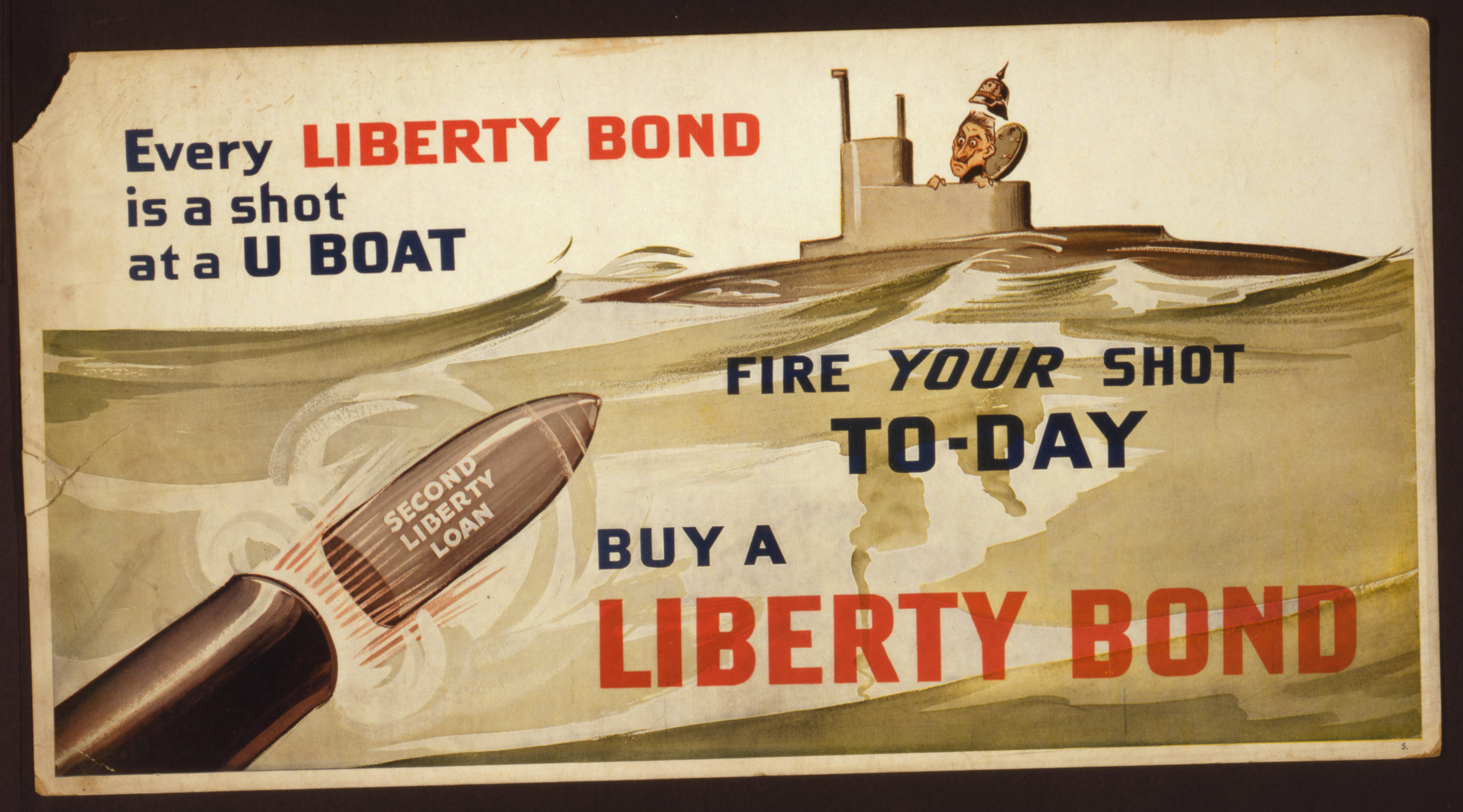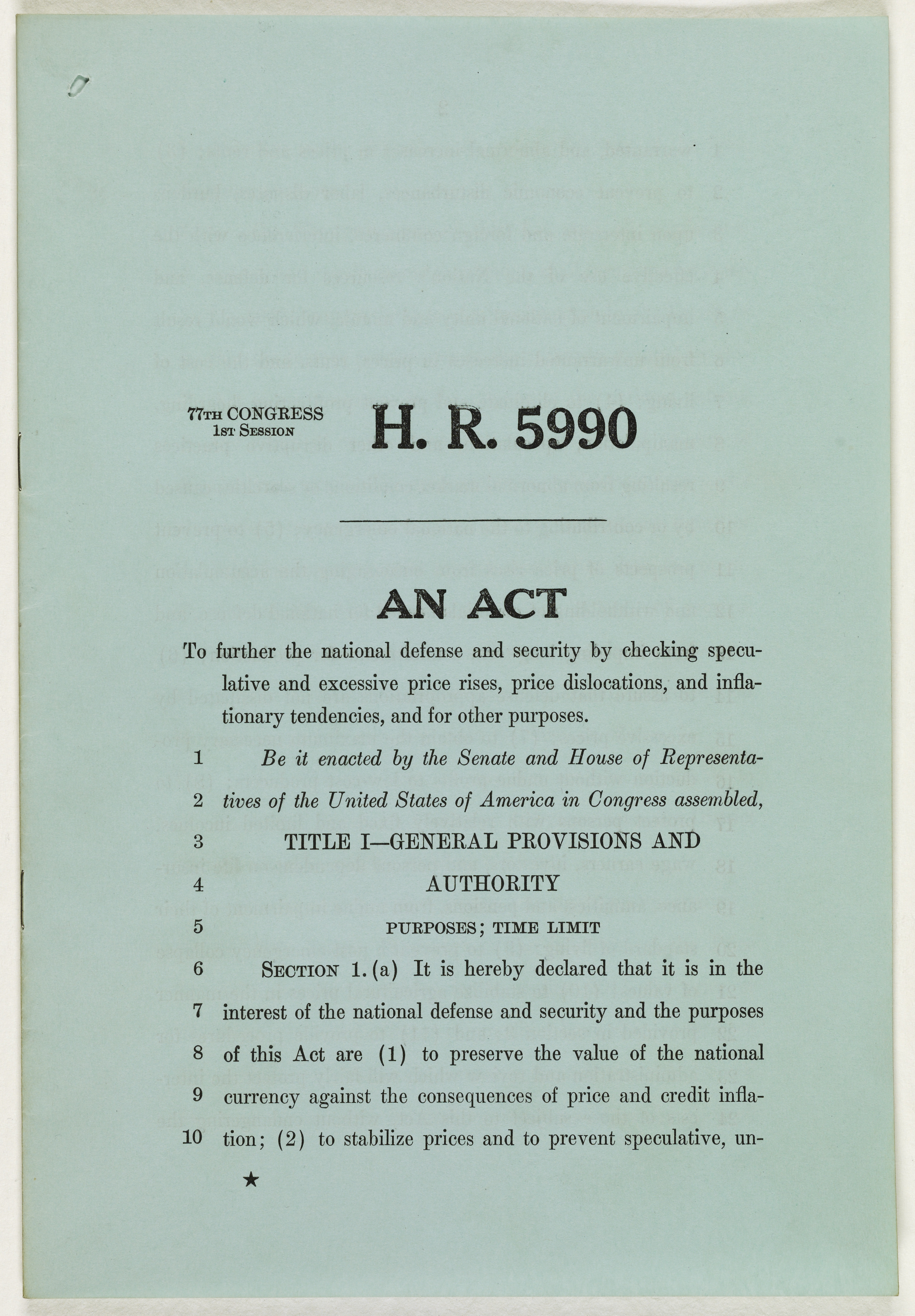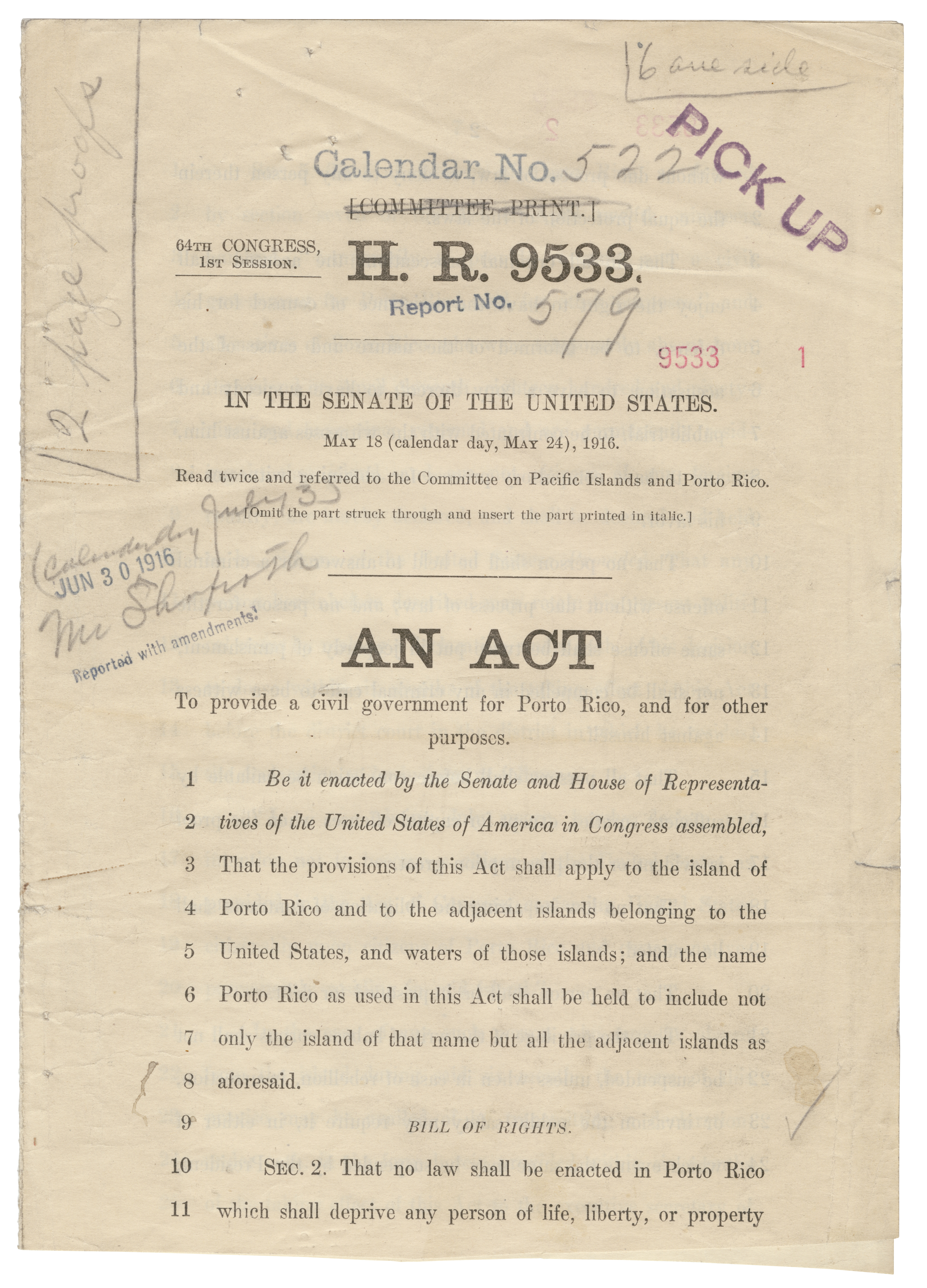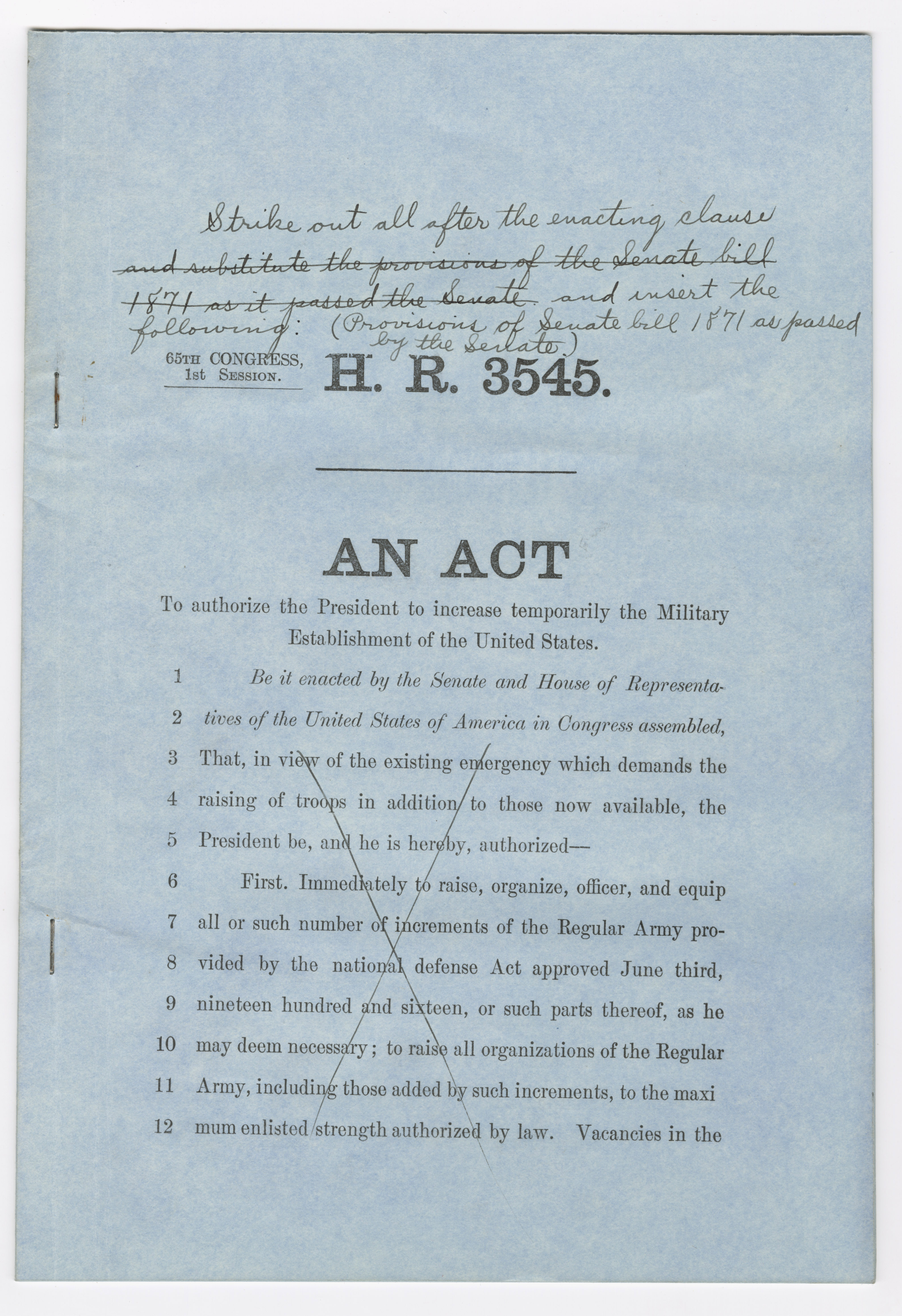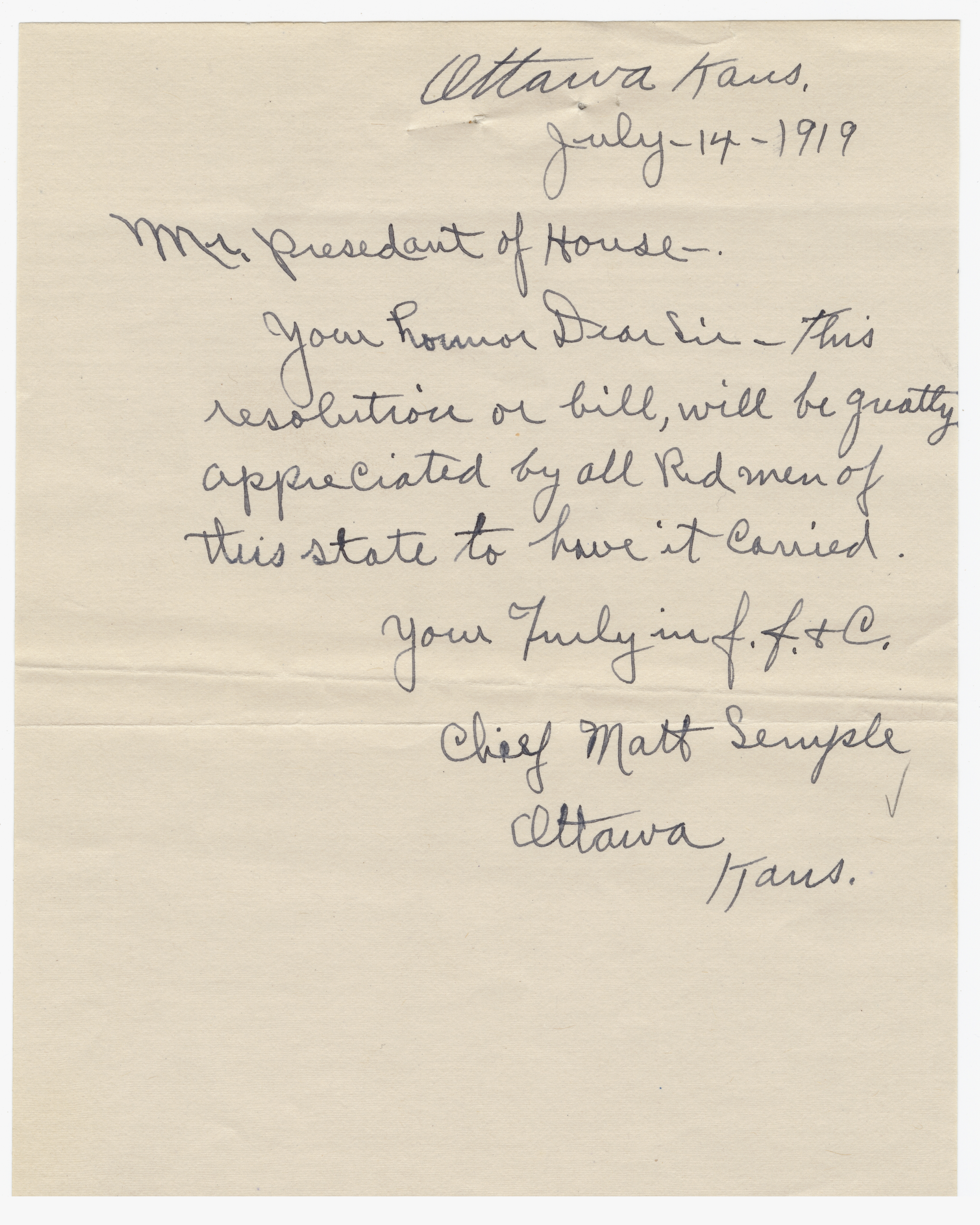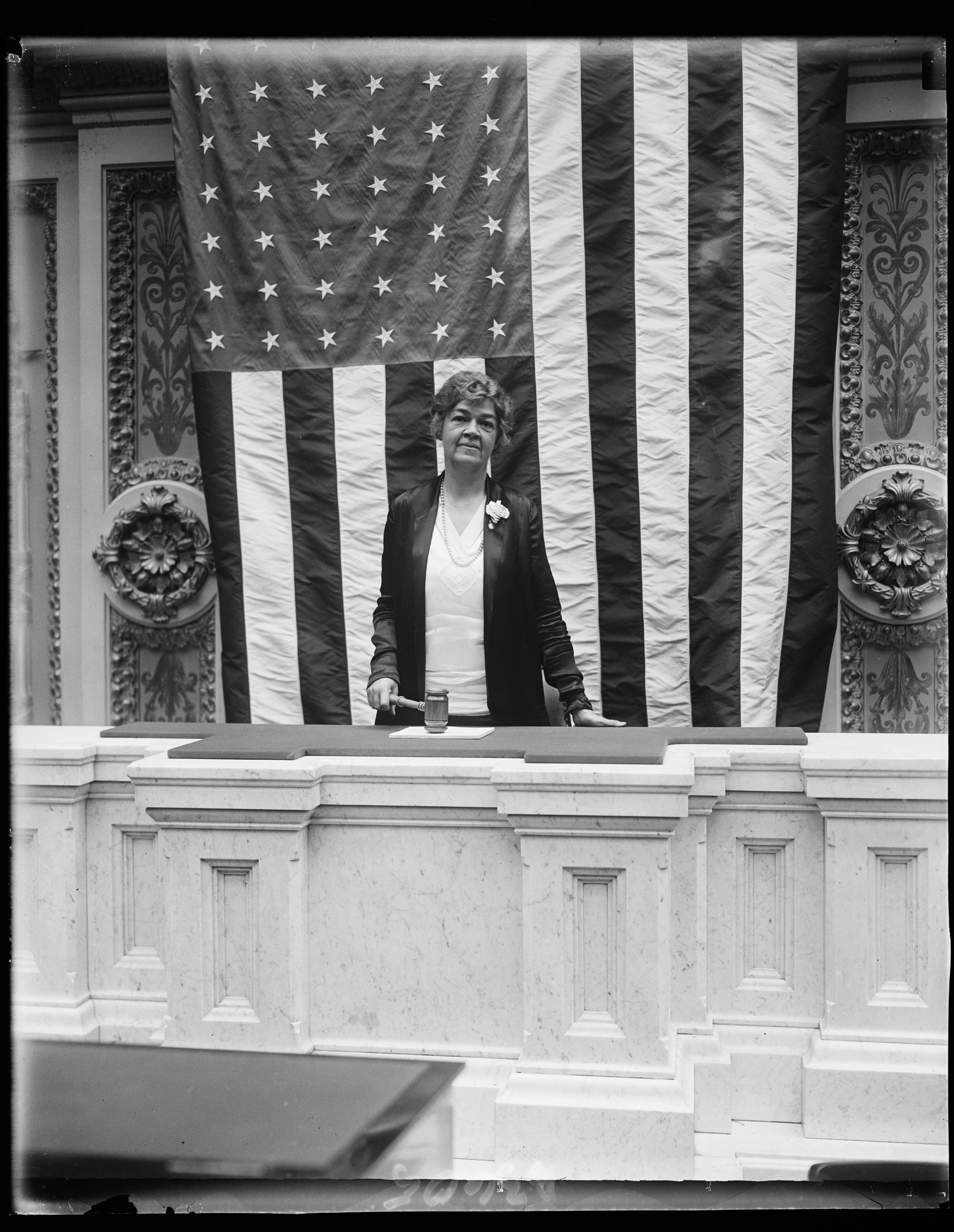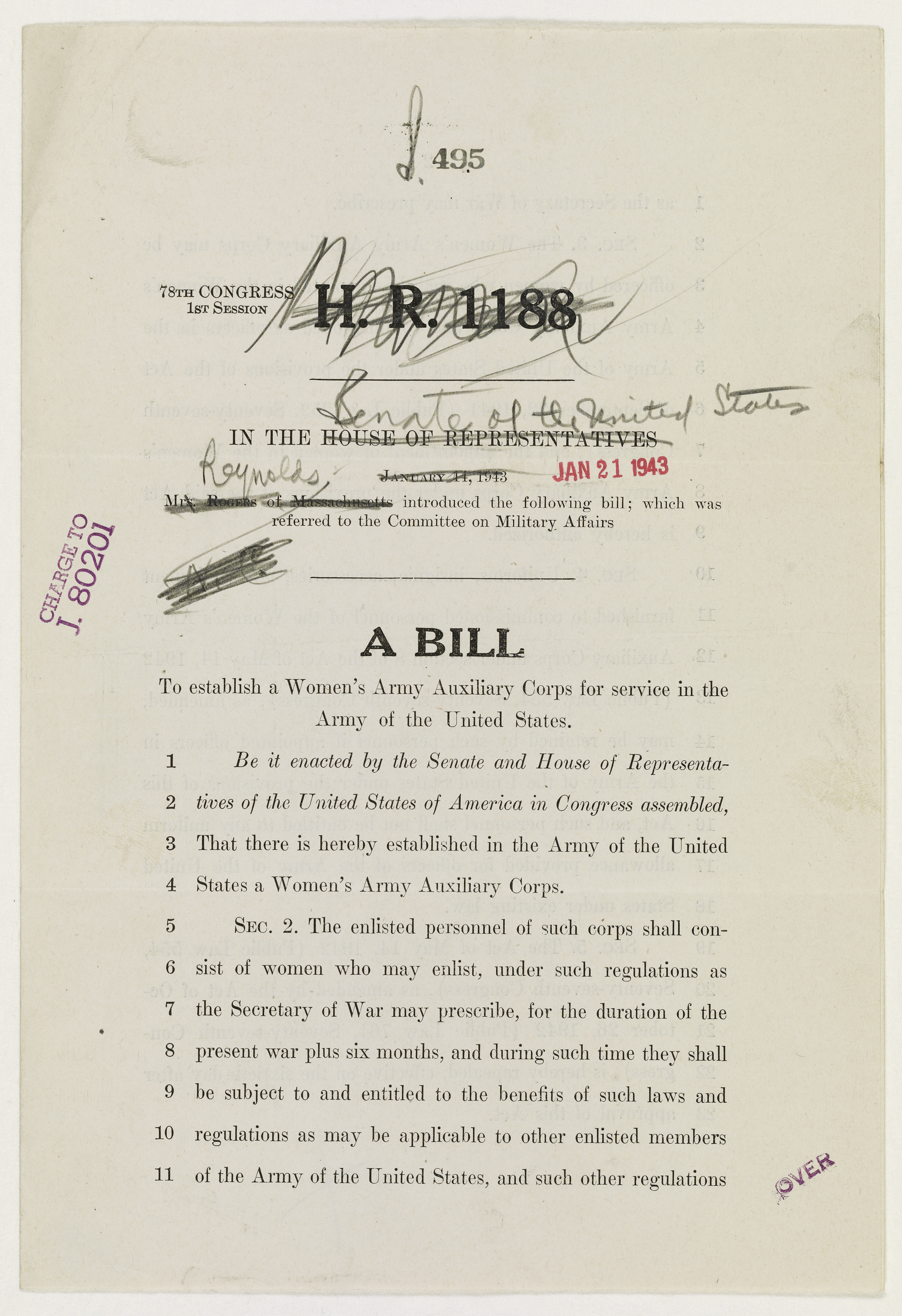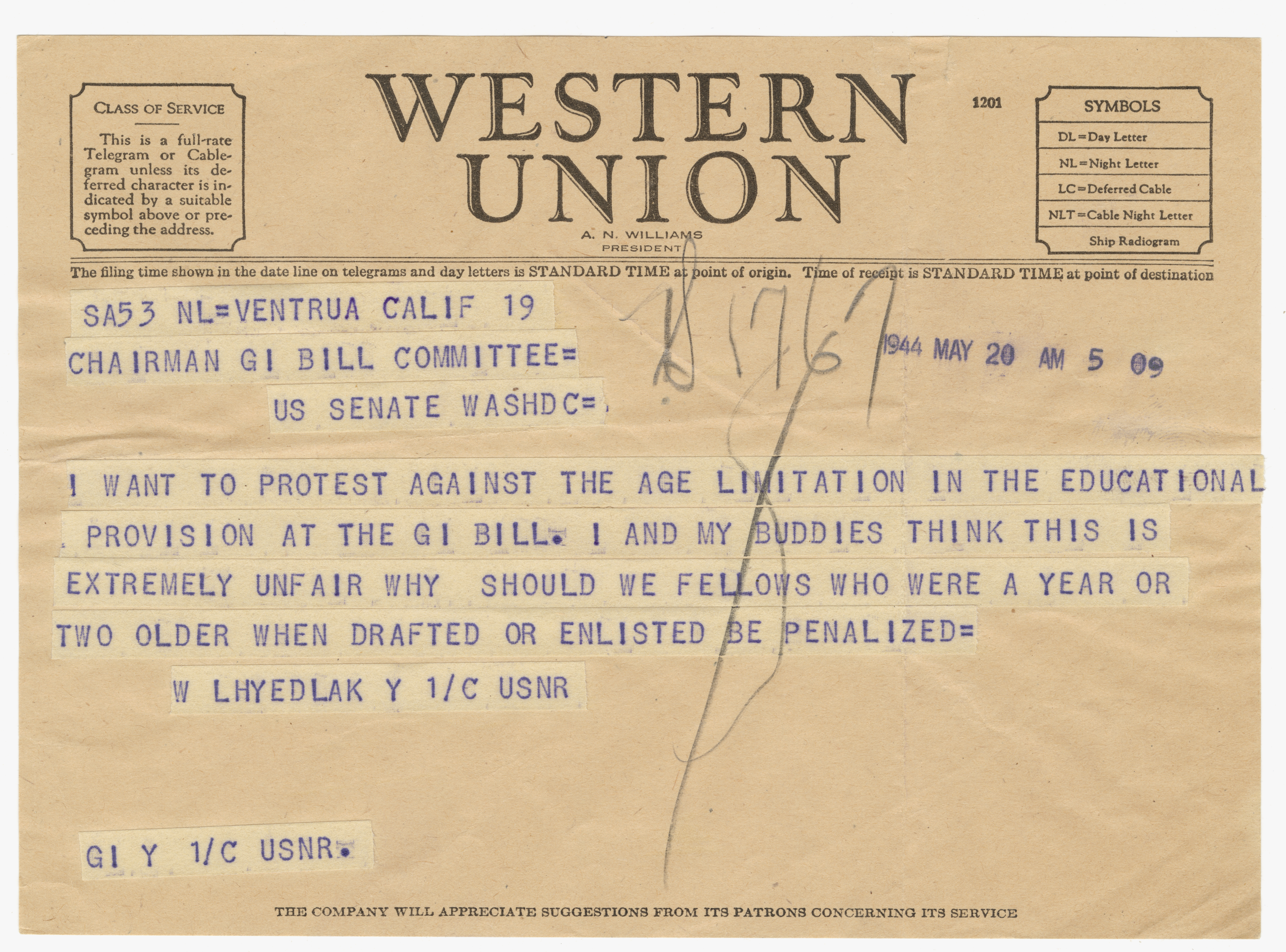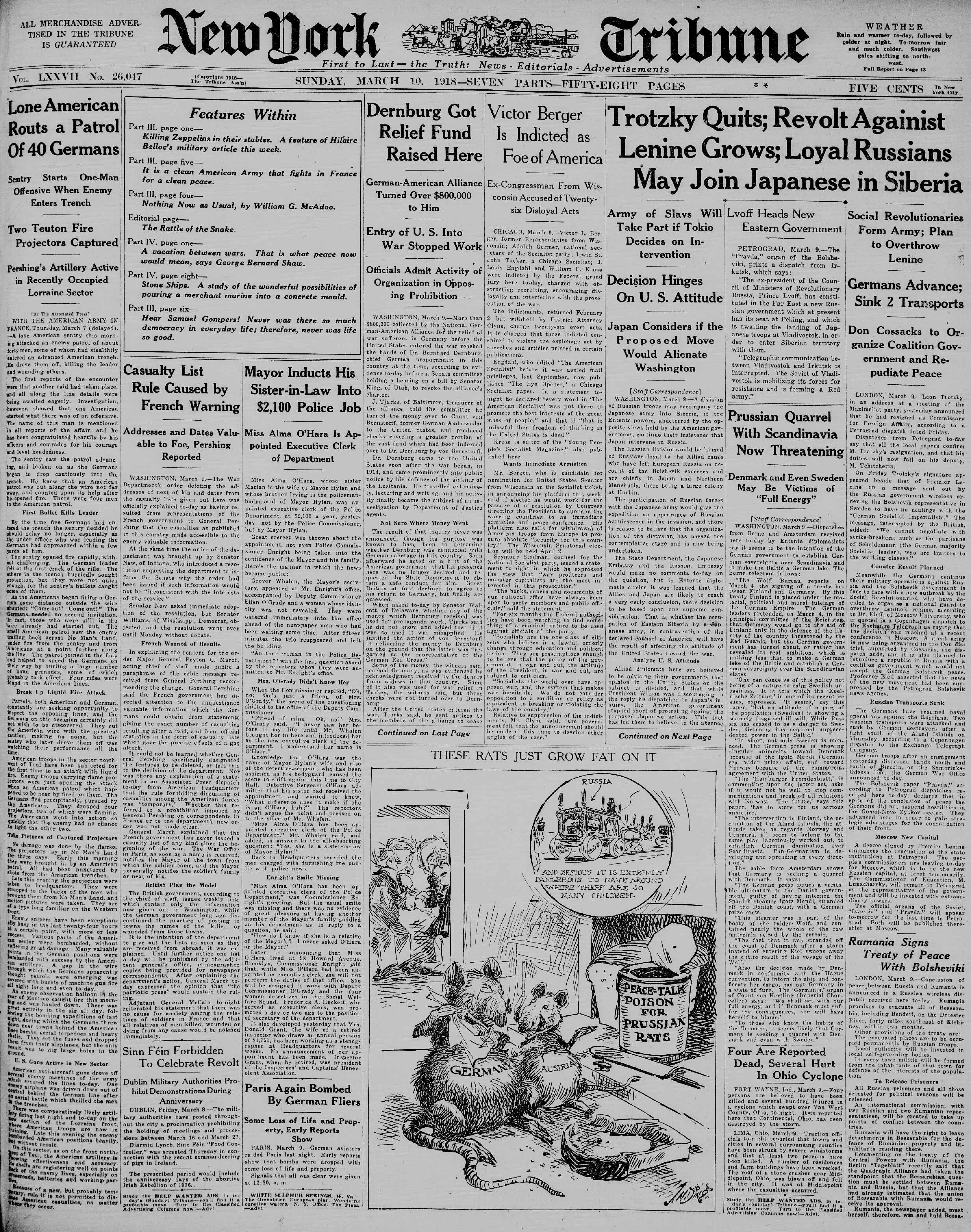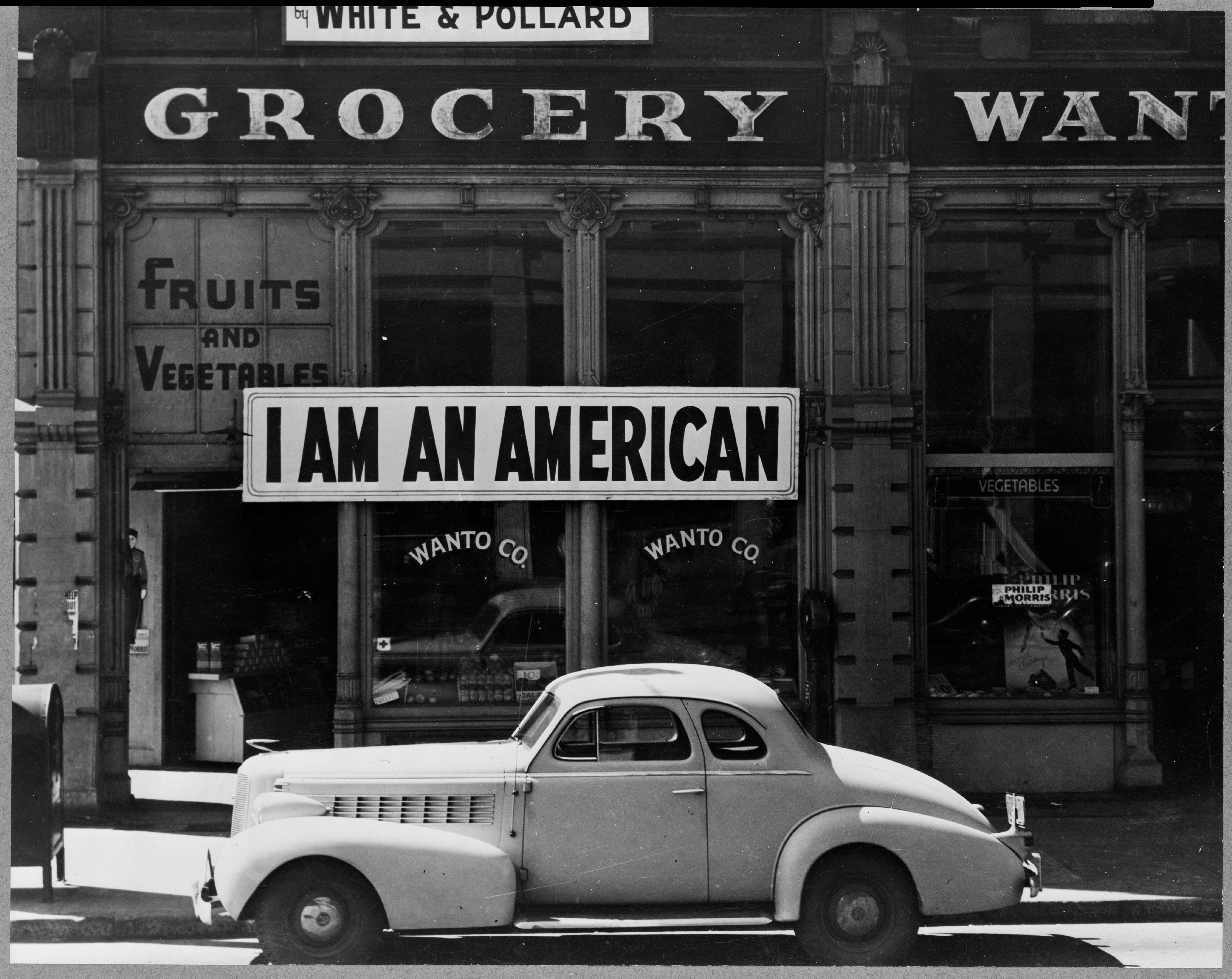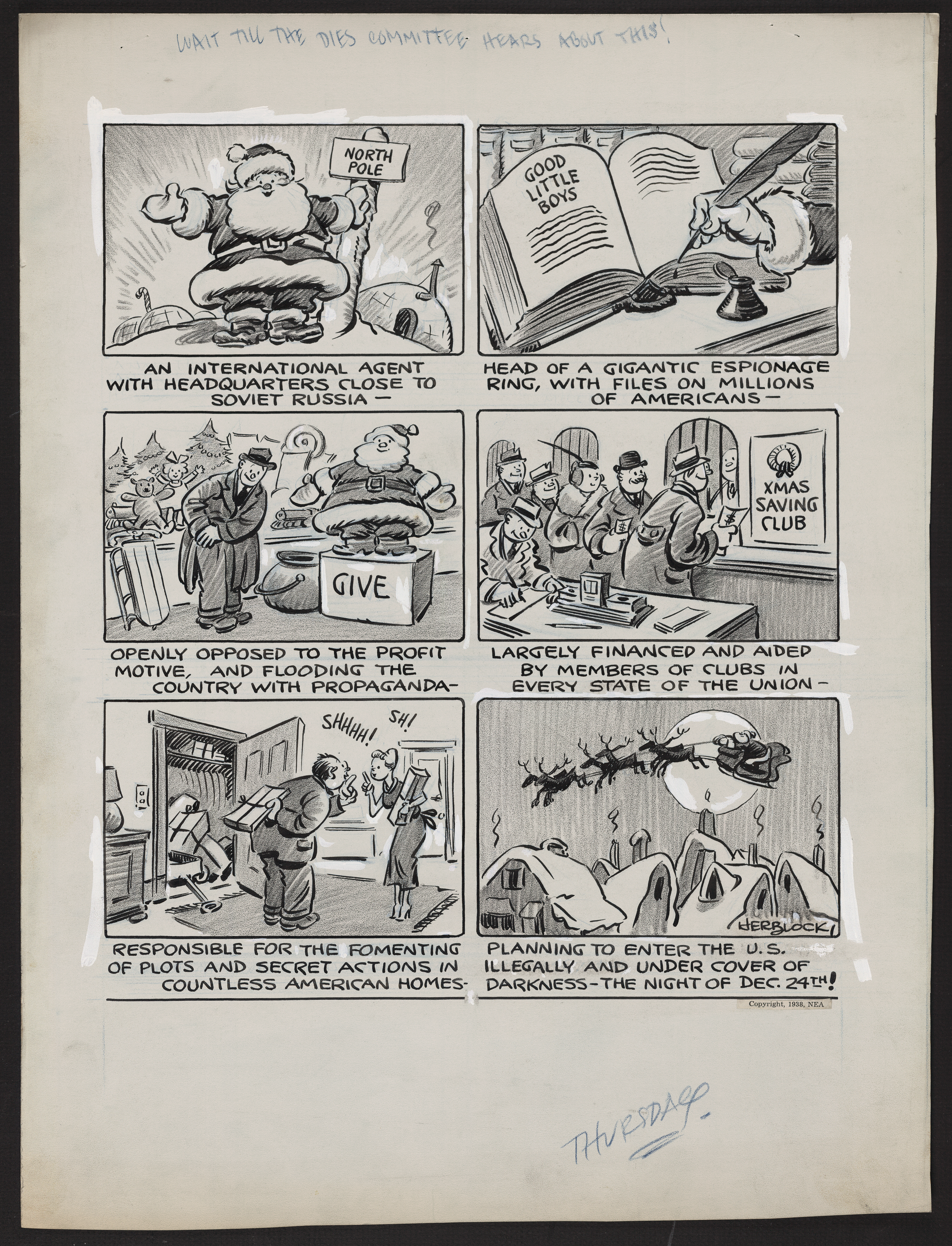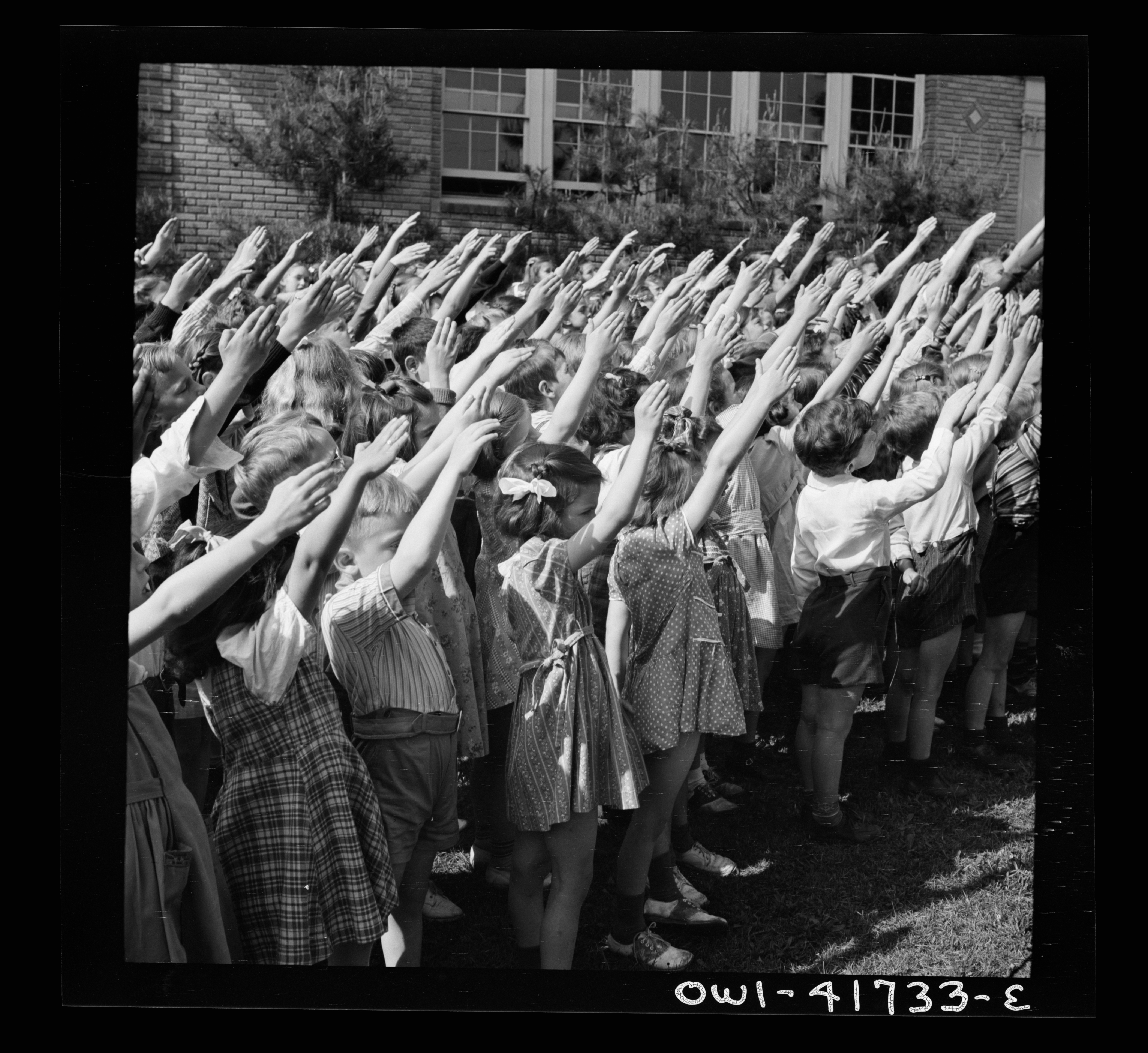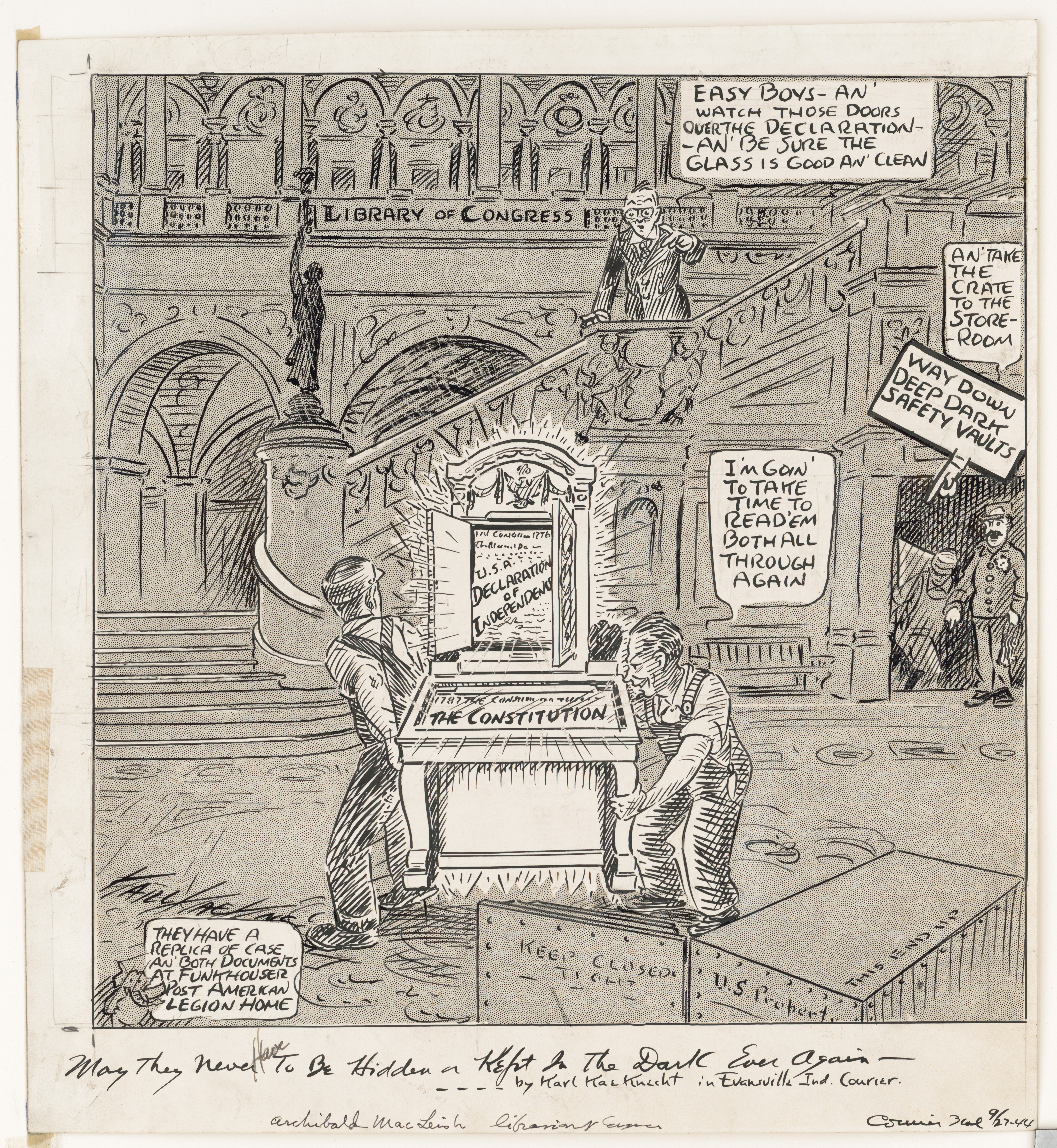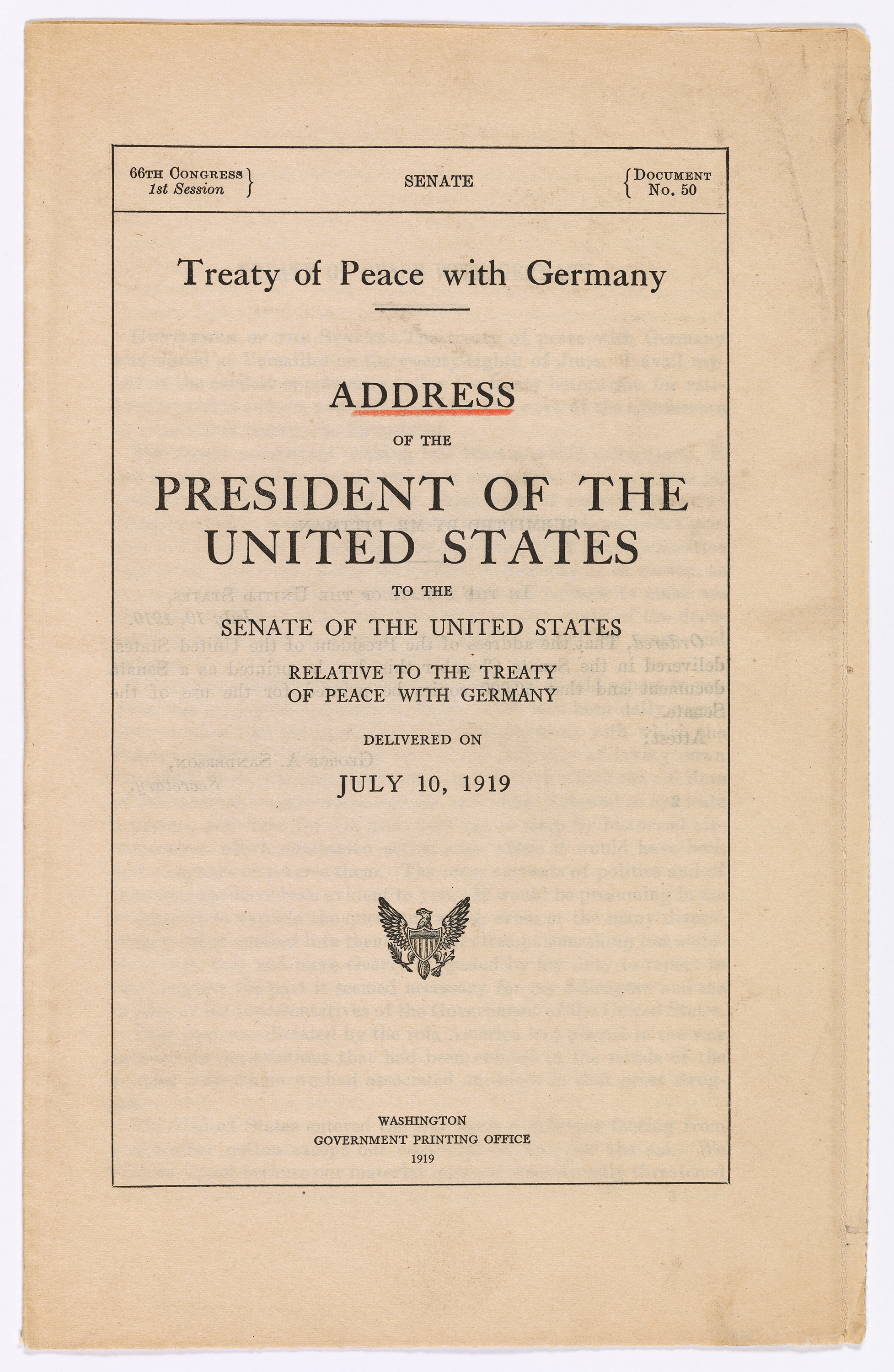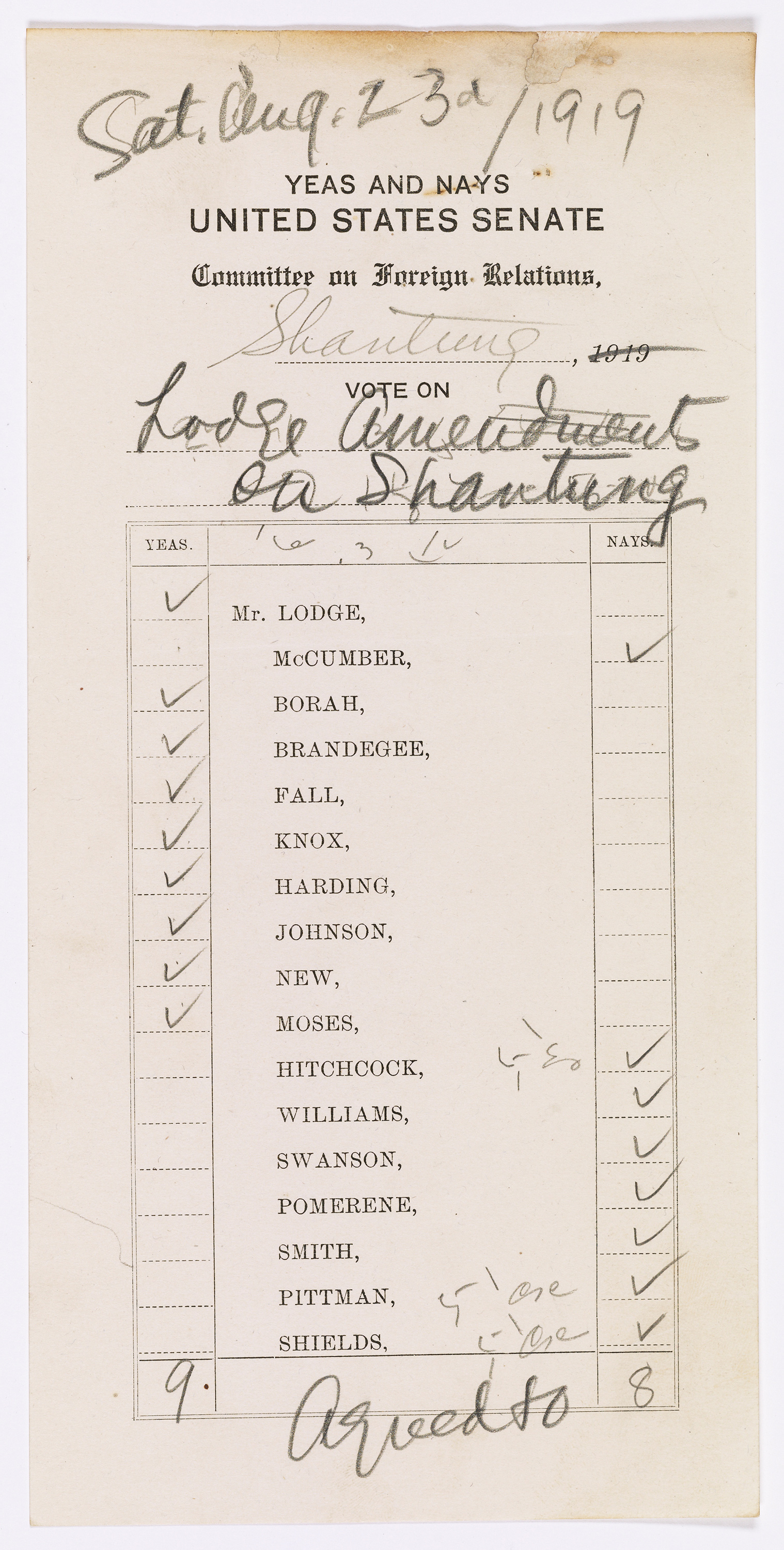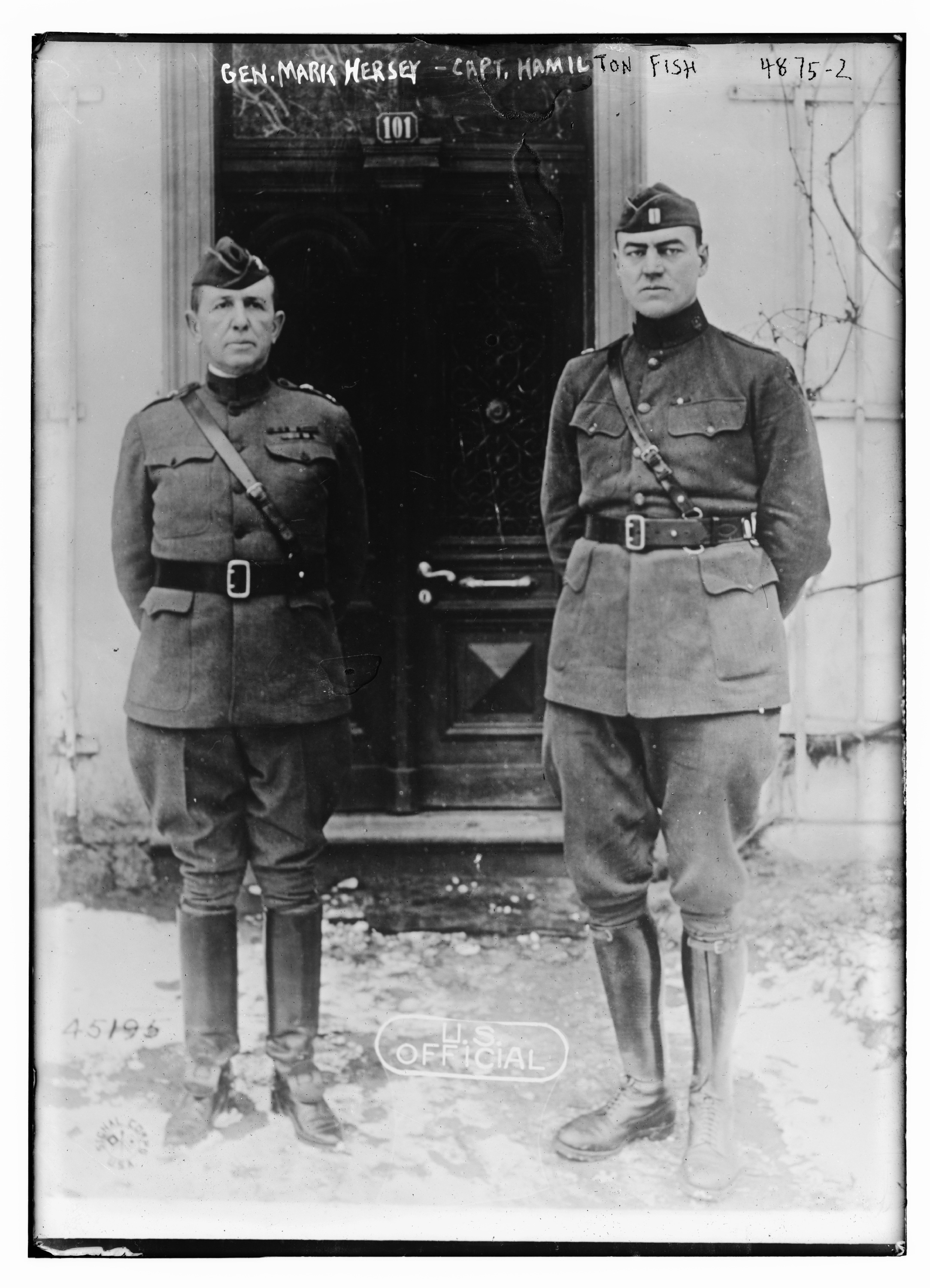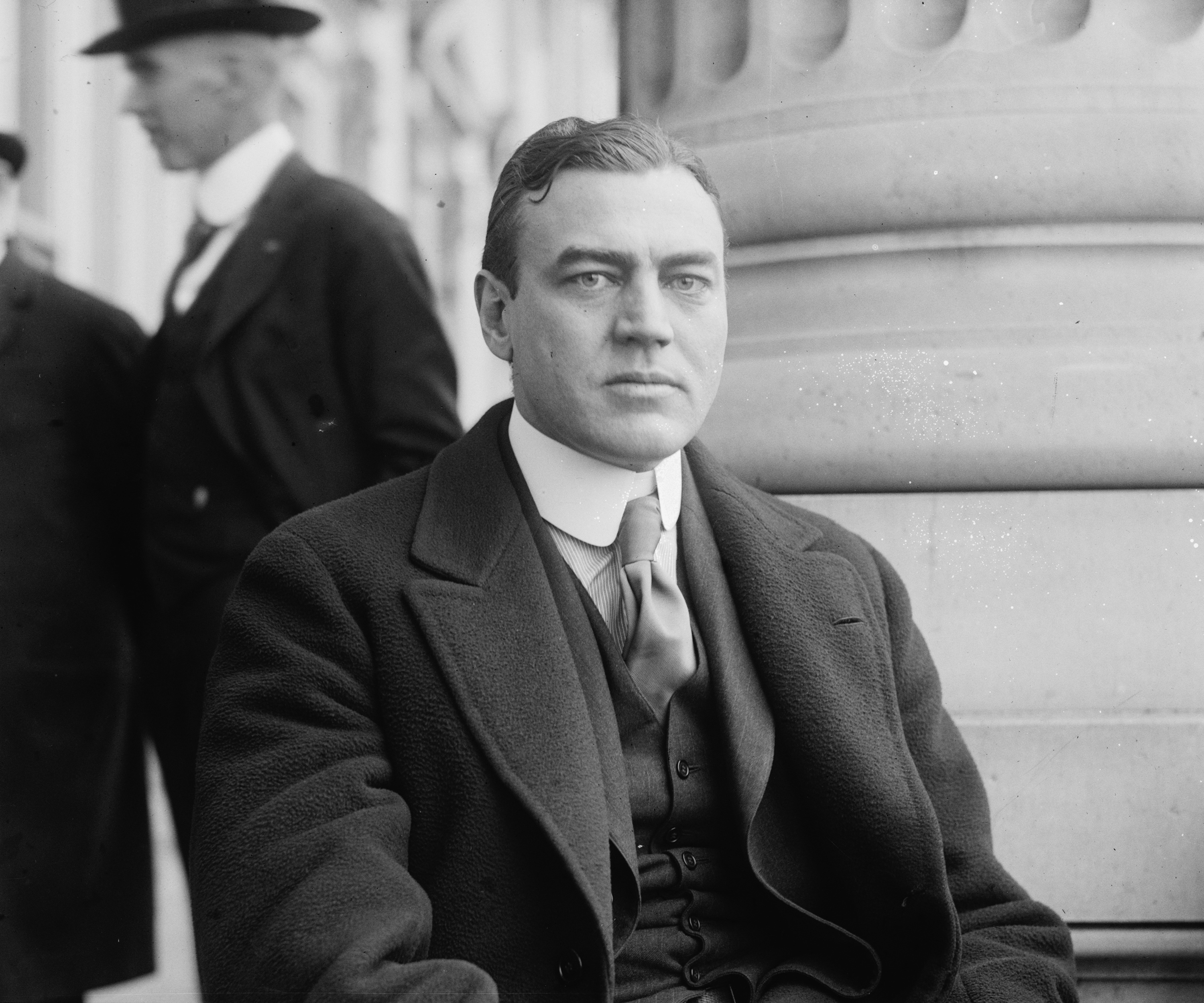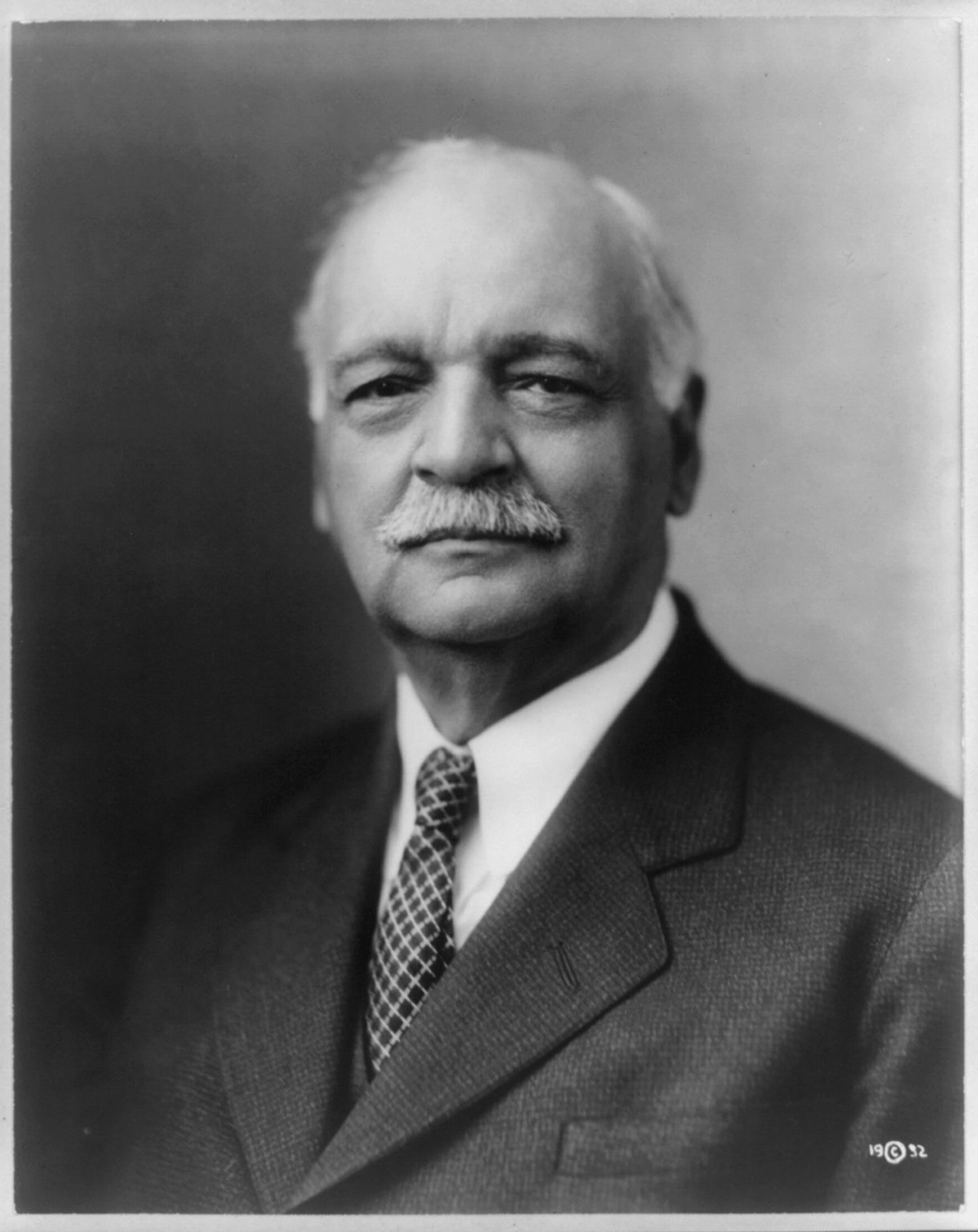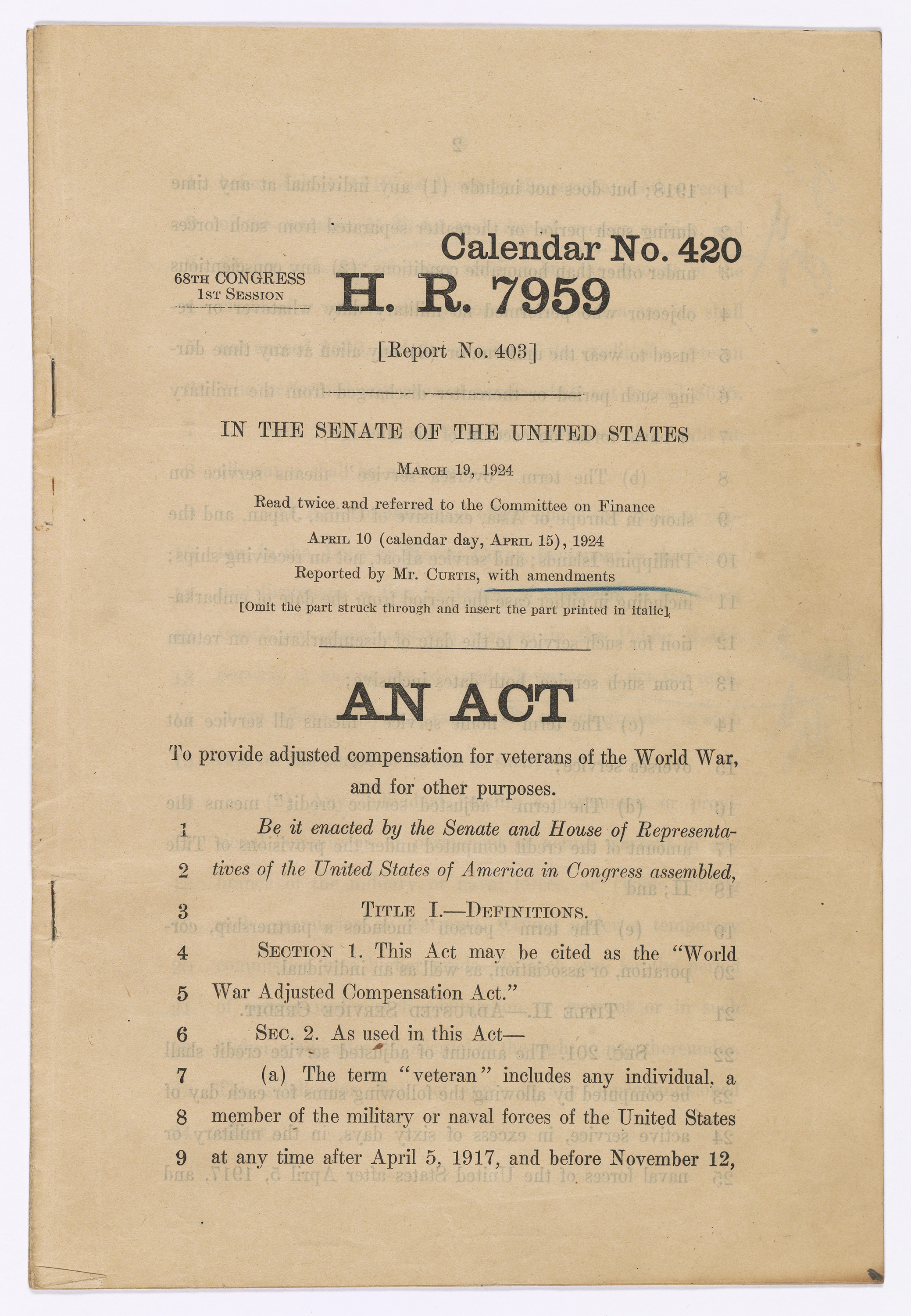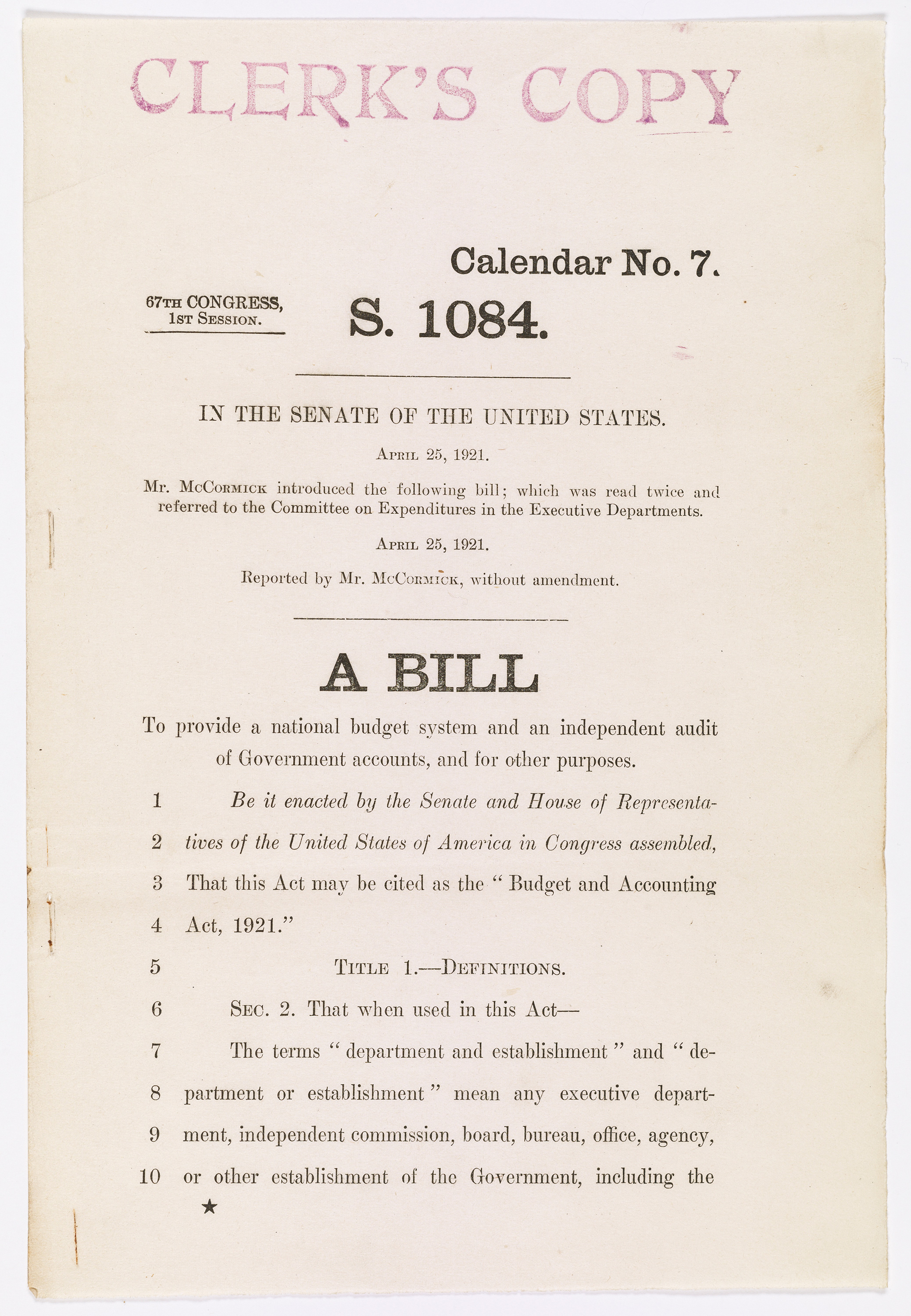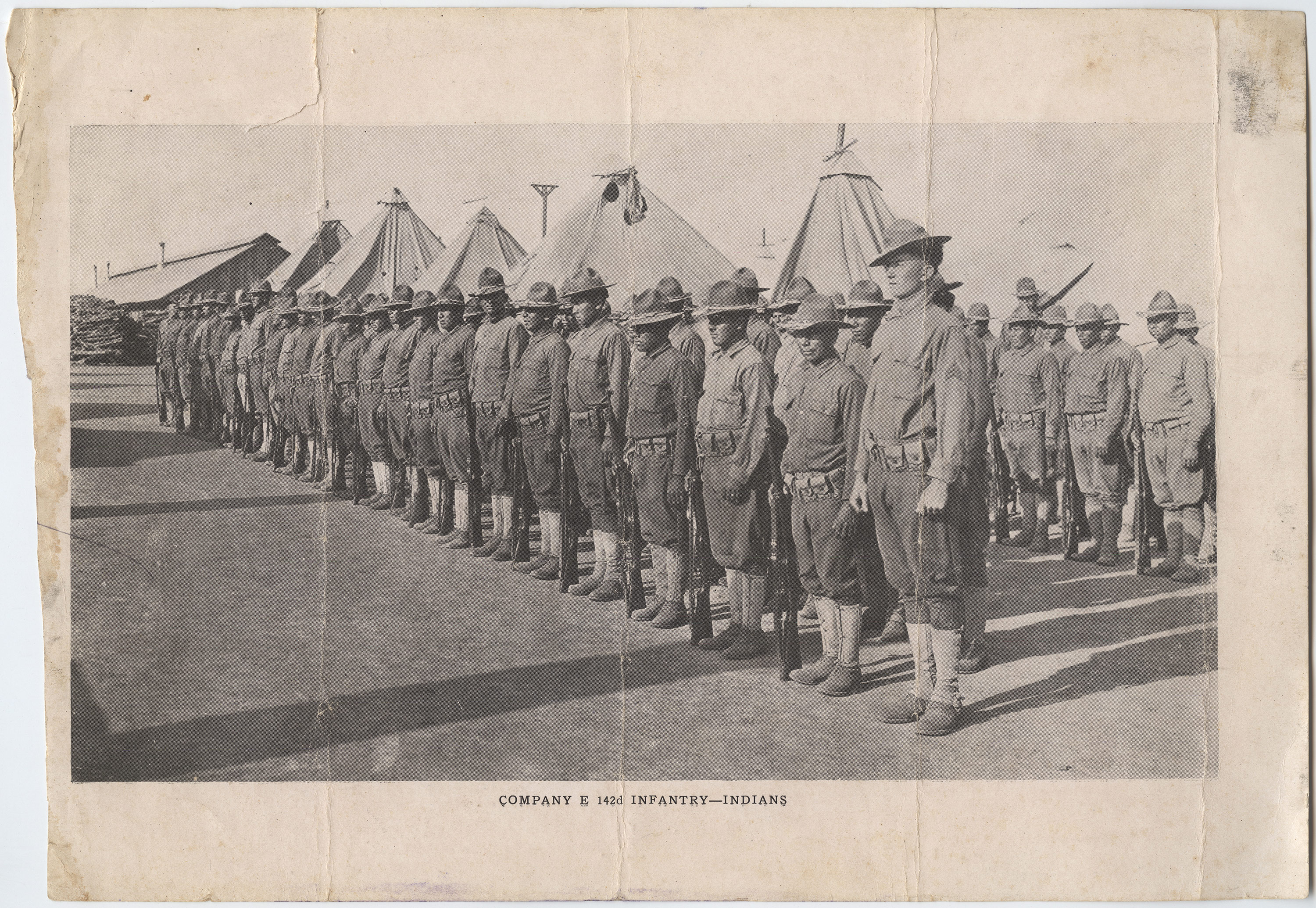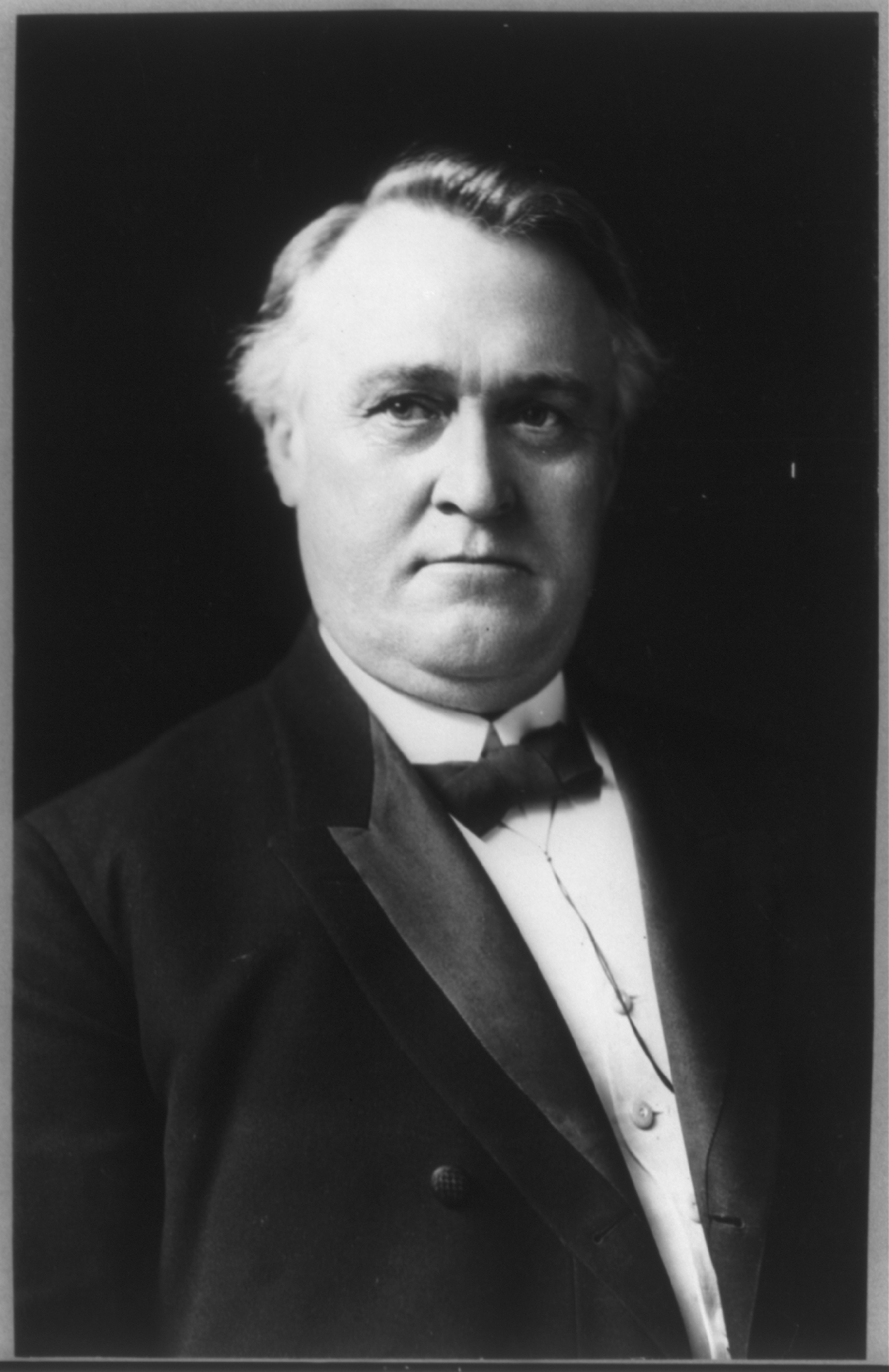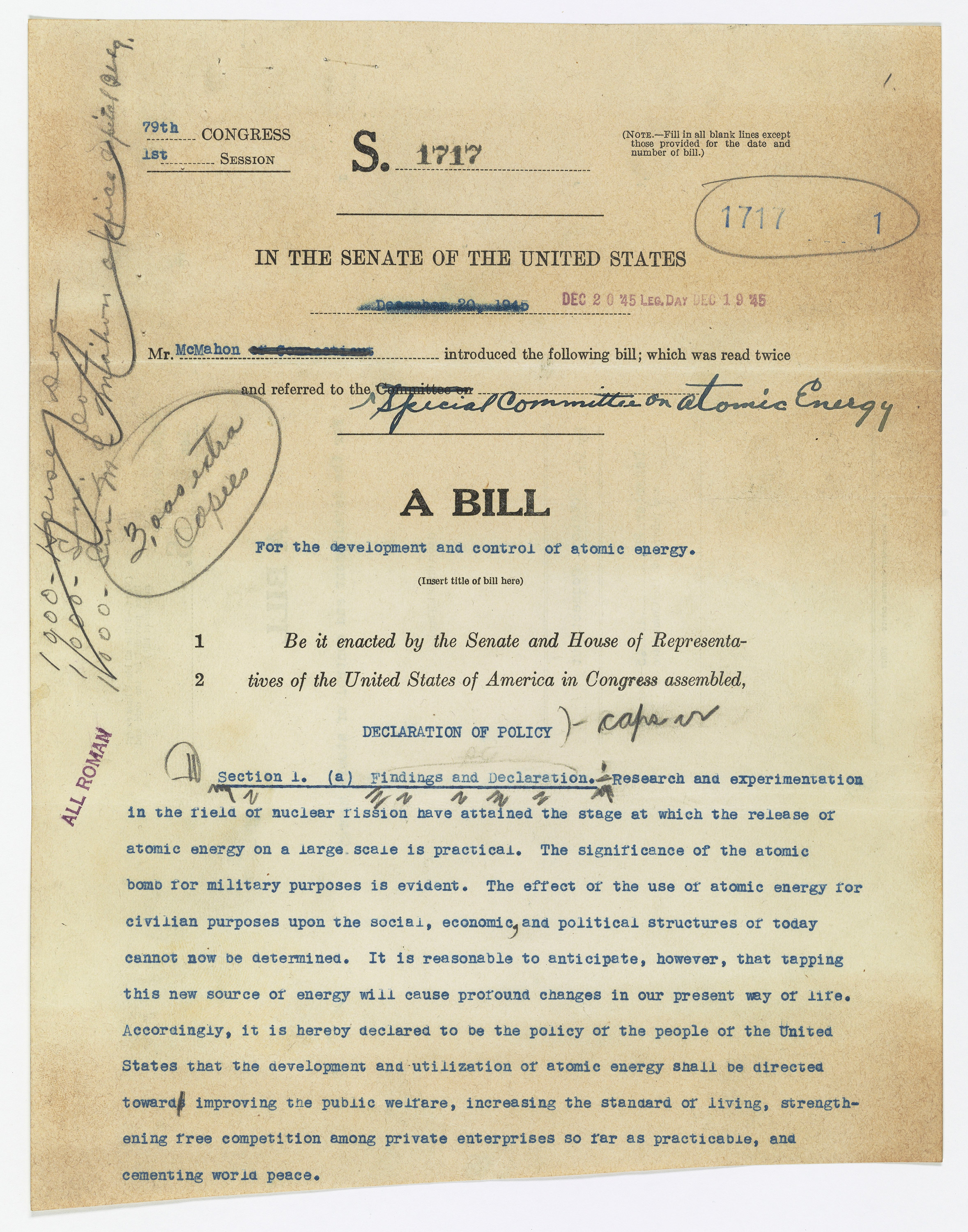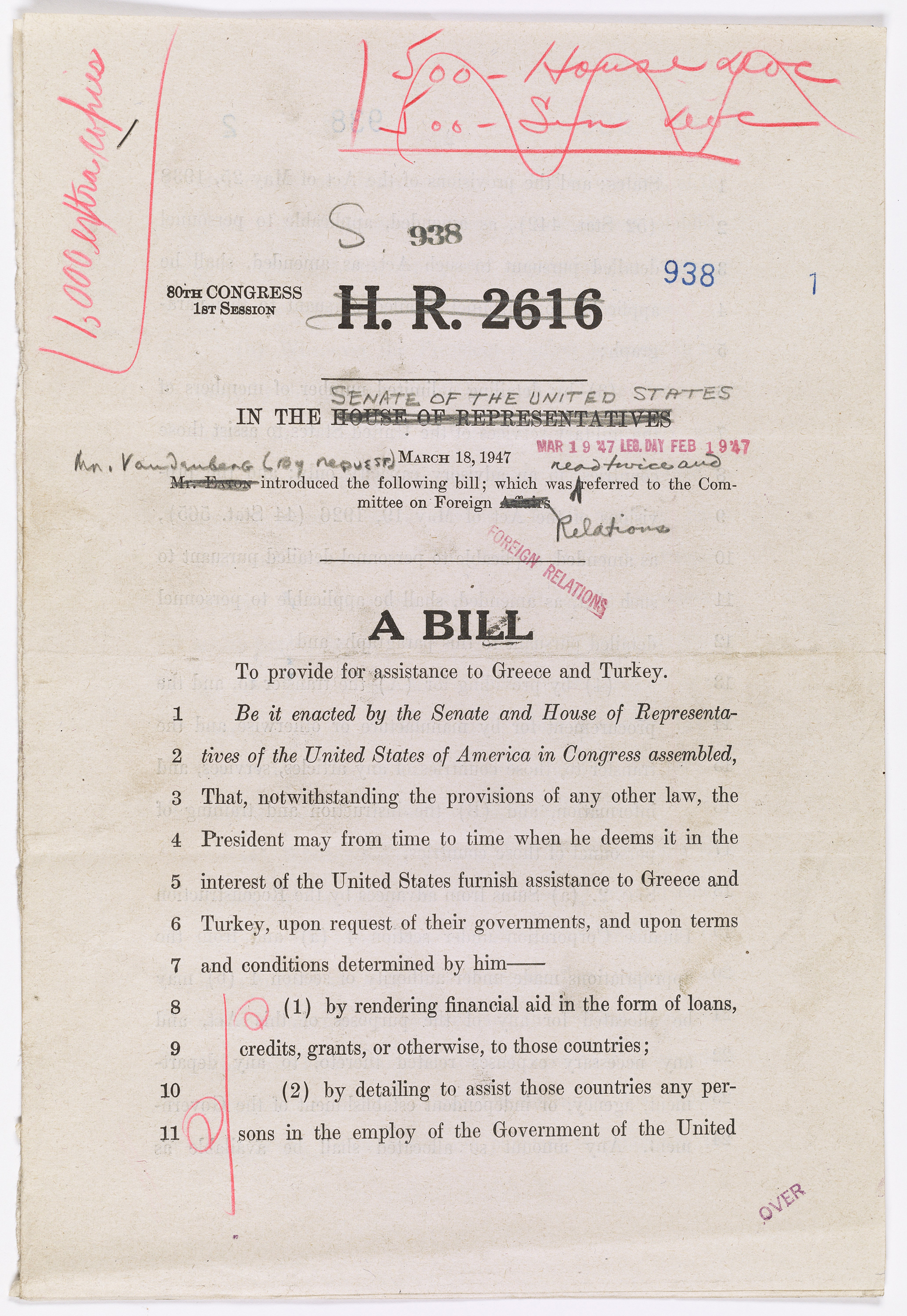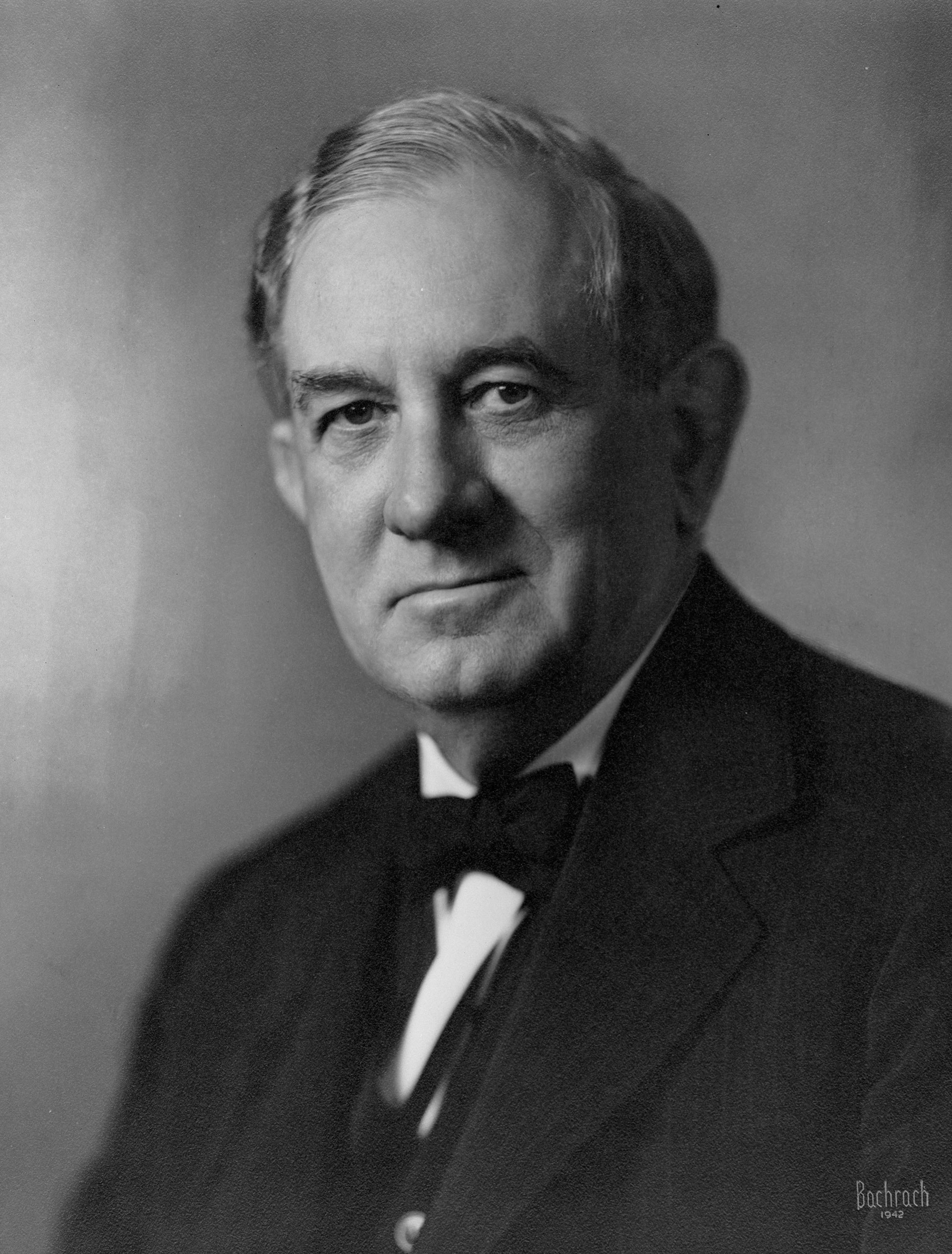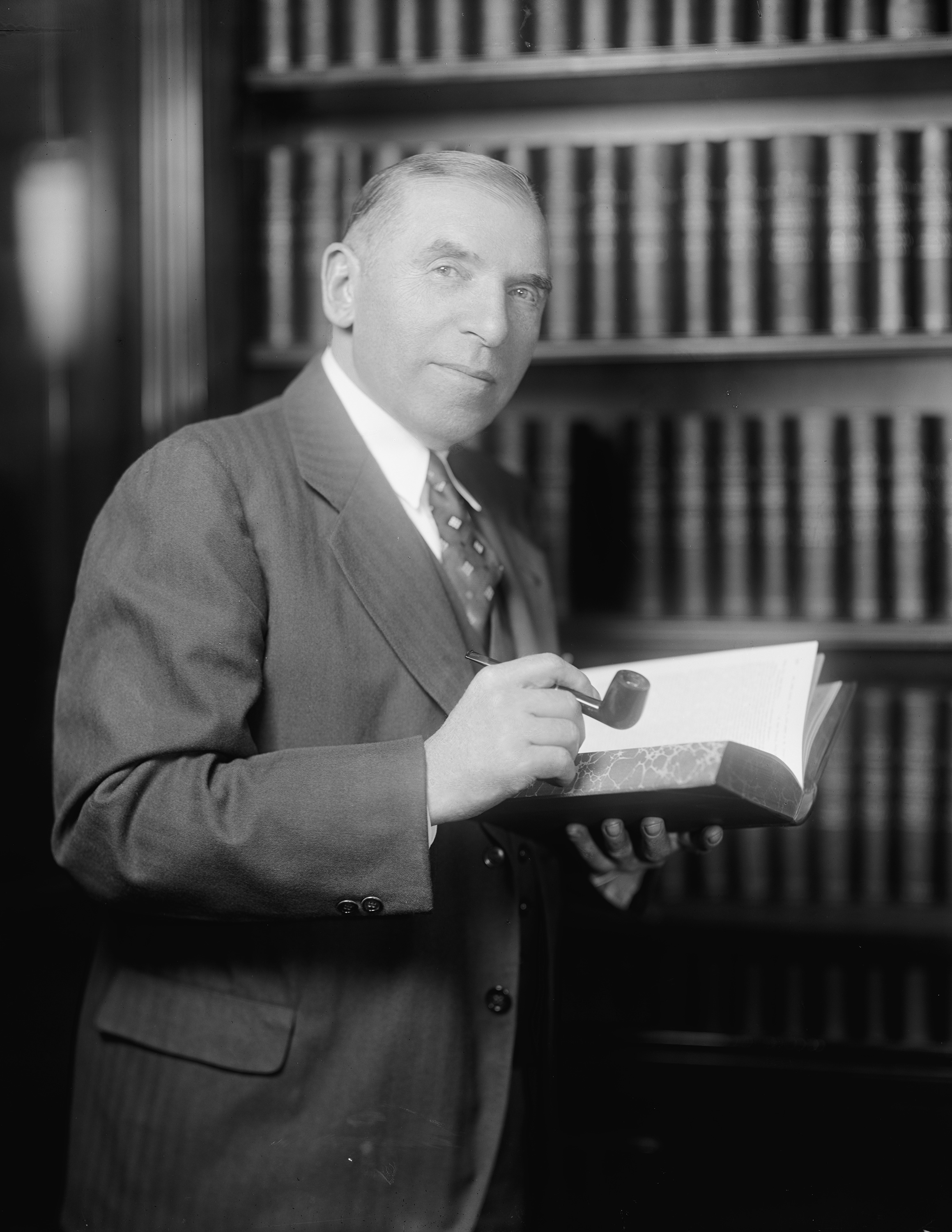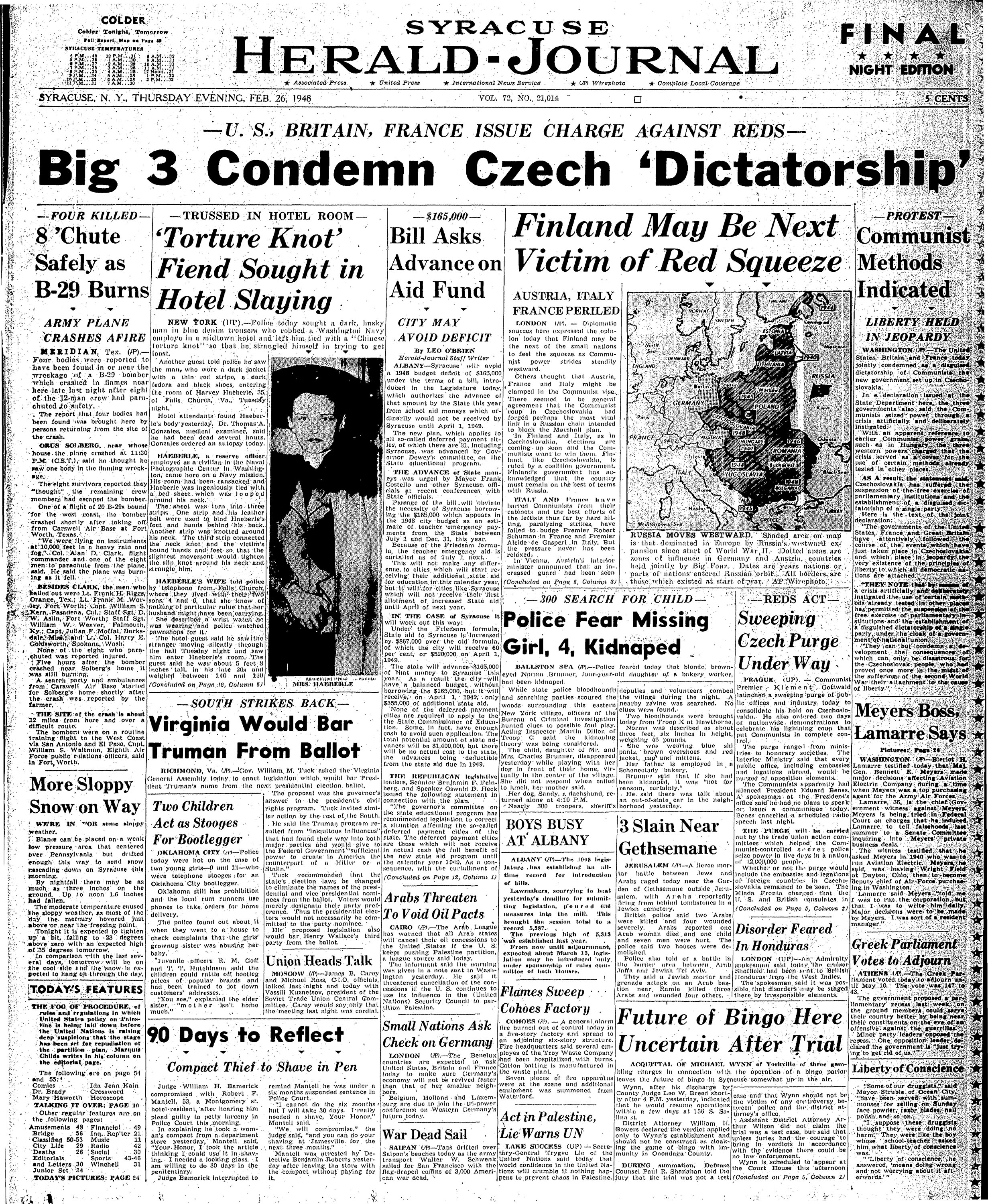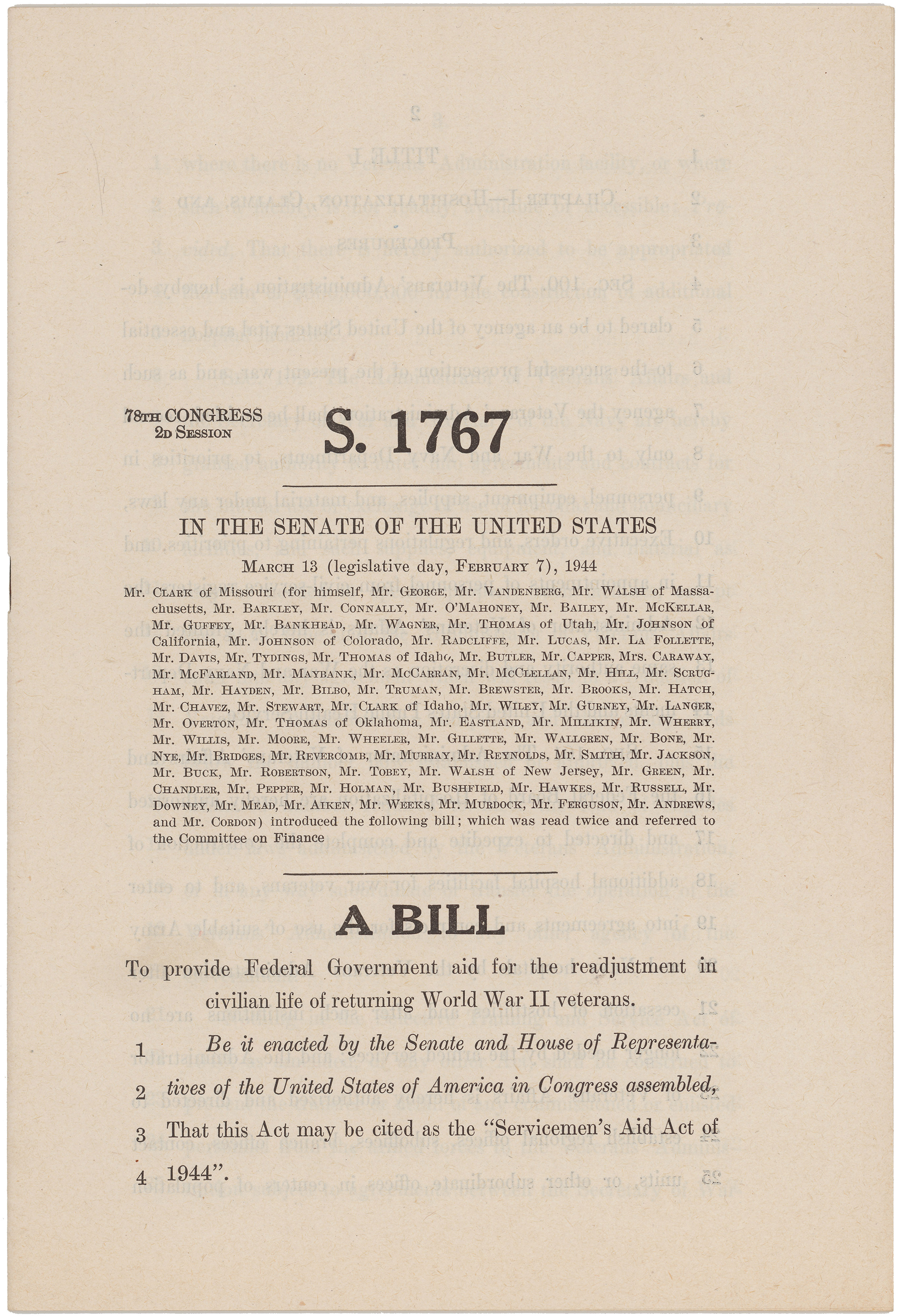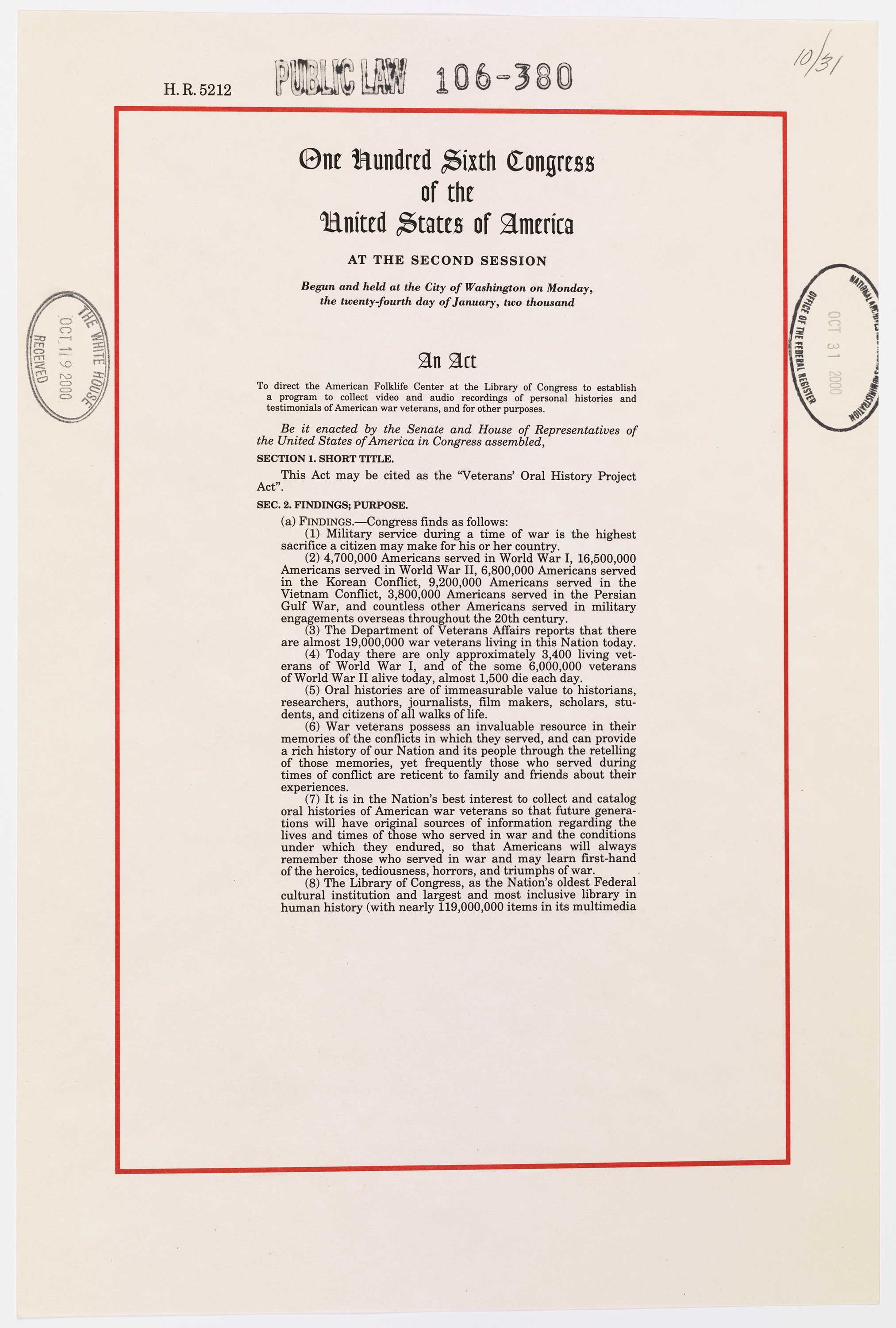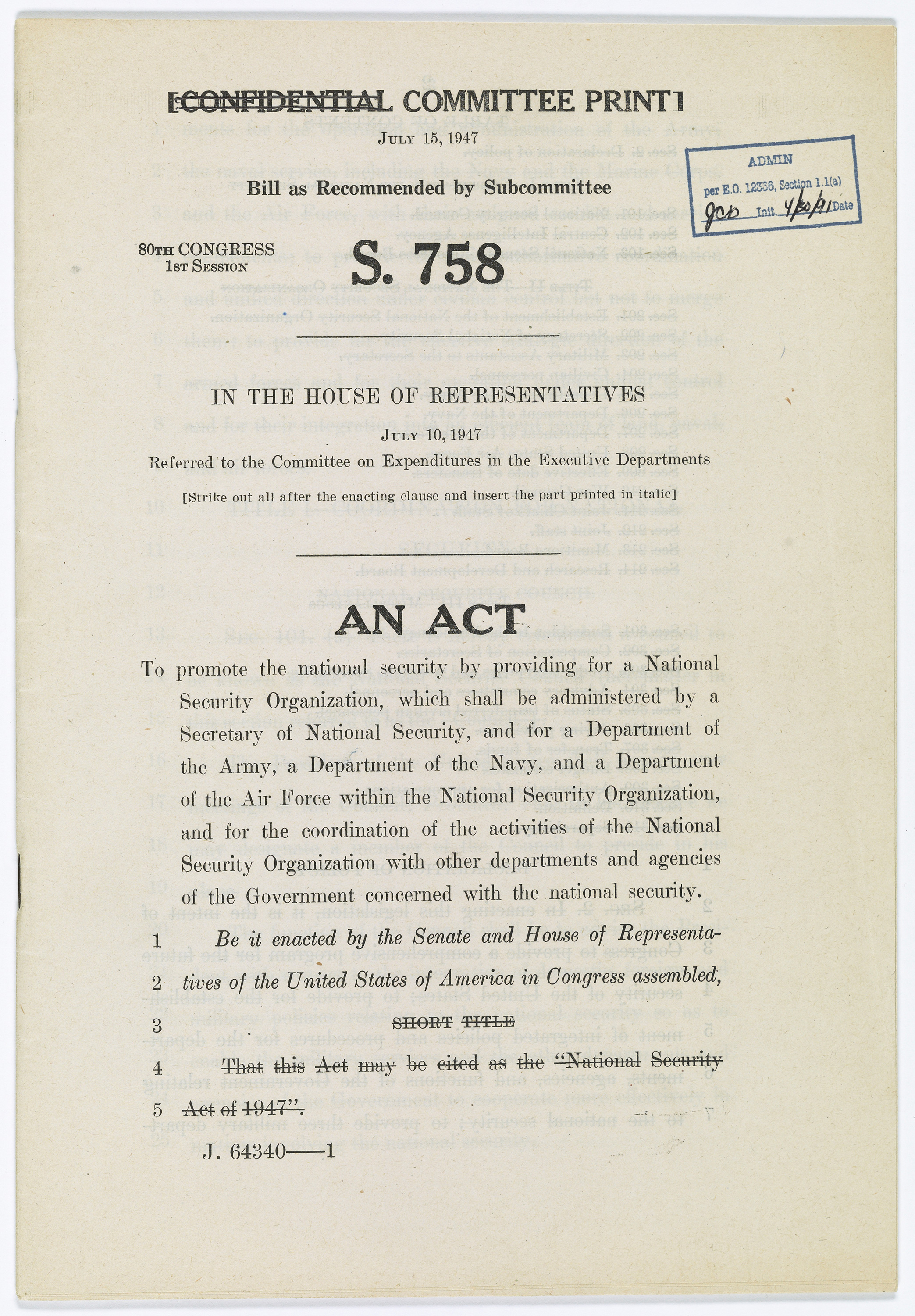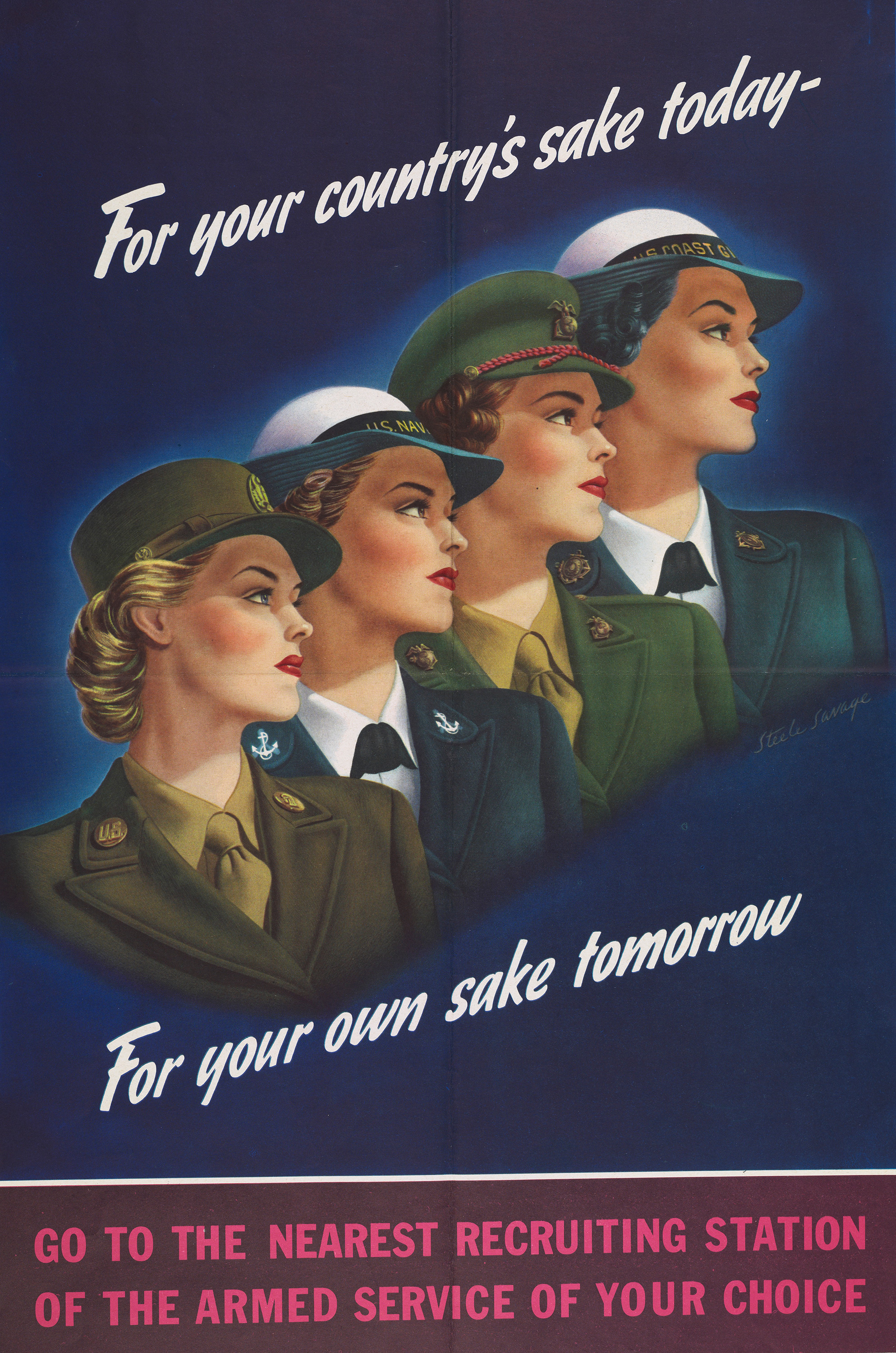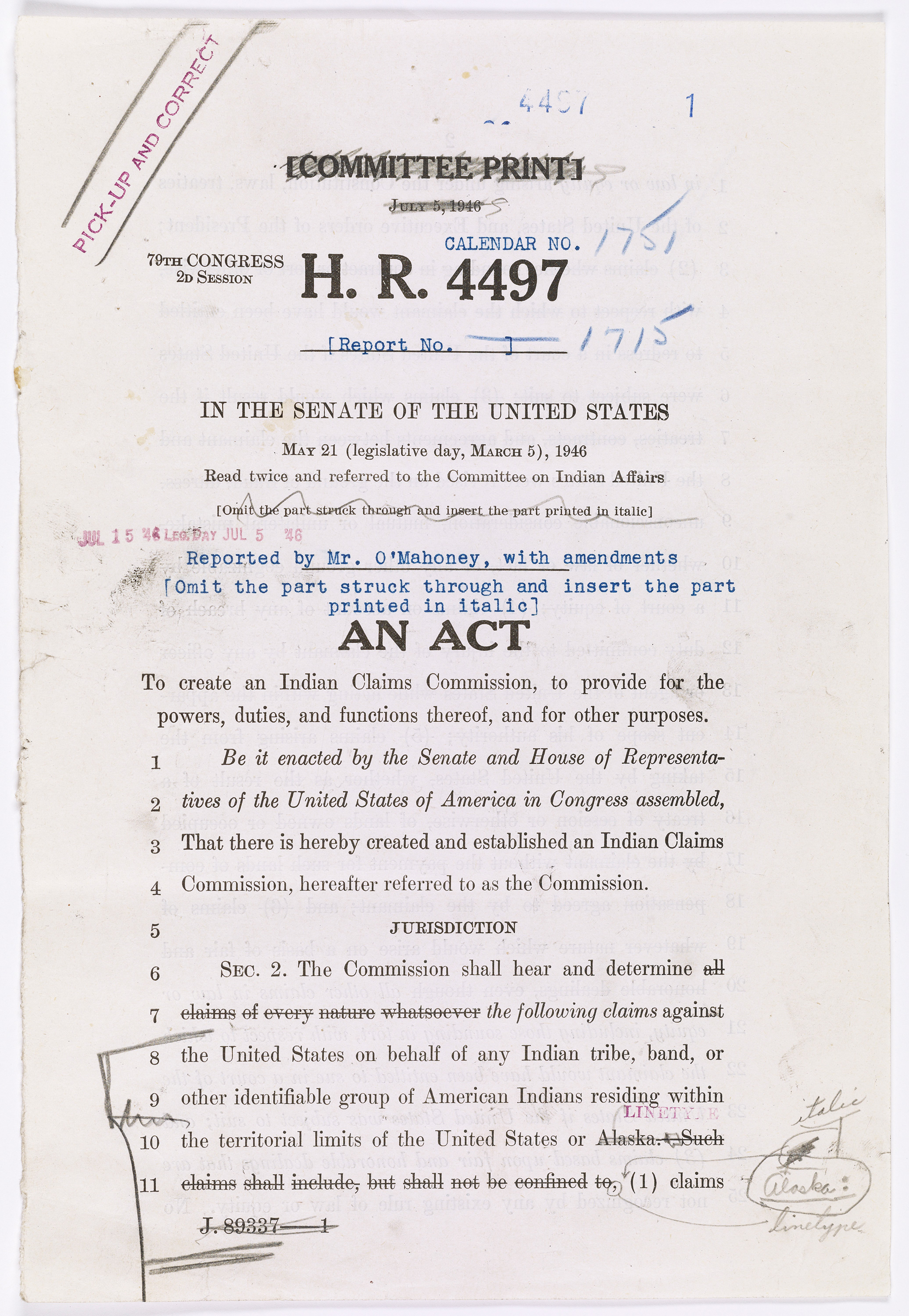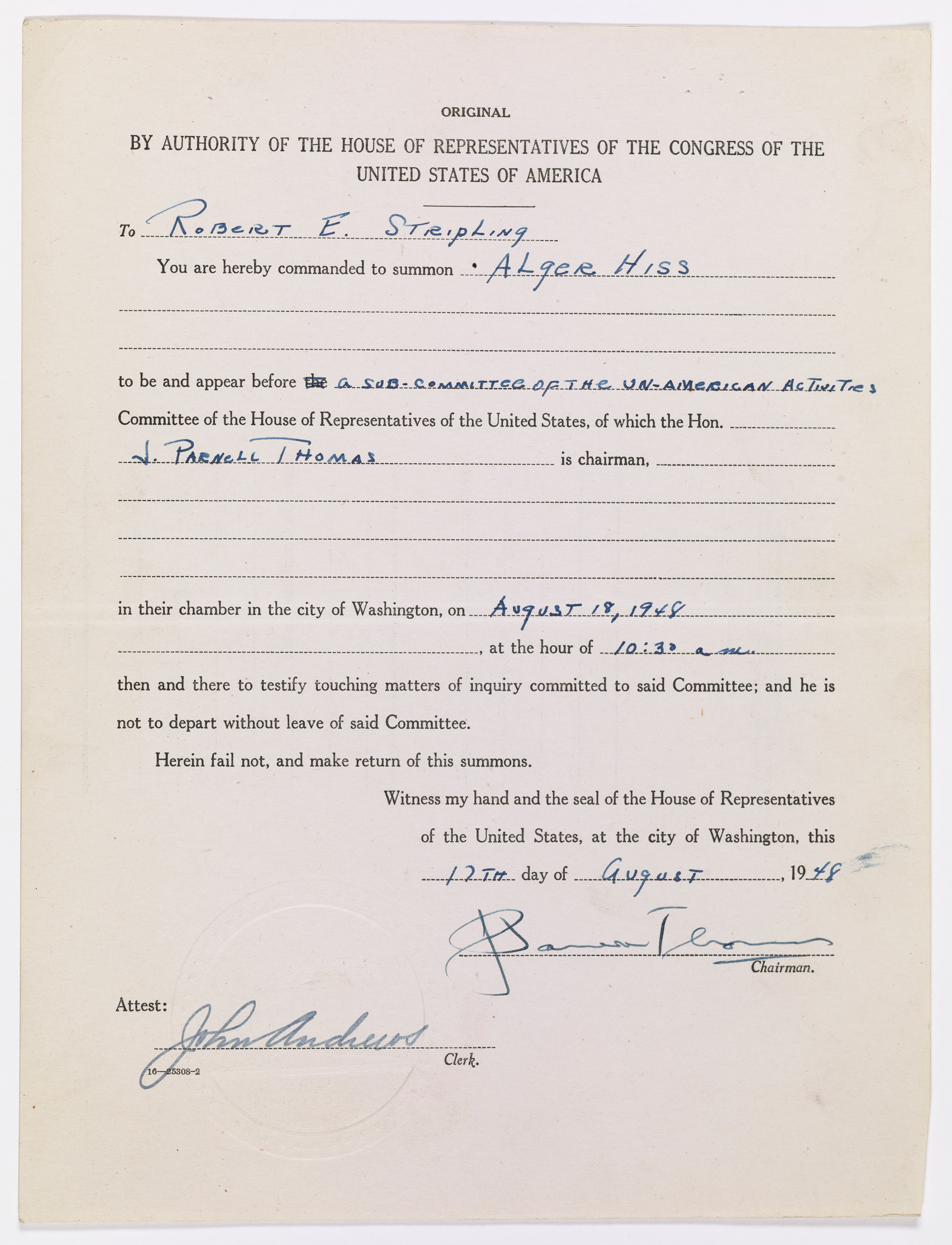Congress and the World Wars
World War I (1914–1918) and World War II (1939–1945) were cataclysmic events, which spurred Congress to address the nation’s role in the world. As foreign aggression increasingly threatened national security, Congress refined its isolationist stance by declaring war on its enemies. To prepare the country for these wars, Congress debated and passed legislation to recruit citizens to serve their country, expand the U.S. citizenry and their rights, regulate the domestic economy, and define national loyalty. These laws forever changed the nation and the everyday lives of all Americans.
Fighting the Wars
National Loyalty
World War I: A World Transformed
When President Woodrow Wilson attended the post-war Paris Peace Conference in 1919 to negotiate a peace treaty, he chose not to include members of Congress in his delegation, even though the Senate would ultimately decide whether or not the United States would approve the treaty. Upon Wilson’s return, the Senate rejected the Treaty of Versailles after a lengthy and contentious debate, symbolizing Congress’s uncertainty regarding the United States’ newfound status as a world power.
World War I: A Nation Transformed
After the war, Congress authorized new policy changes in the United States that affected how Americans honored those who died in the war, the treatment of war veterans, the rights of women, the citizenship of American Indians, and the federal budget process. Congress also extended a controversial wartime investigation into alleged subversion and instituted historic restrictions on immigration.
World War II: A World Transformed
Congress enhanced that influence by creating multilateral institutions, providing foreign aid to war-torn nations, and debating how best to manage America’s potent atomic capabilities. Members of Congress were instrumental in establishing the United Nations and in seeking to contain communism through support for the Truman Doctrine, the Marshall Plan, and the North Atlantic Treaty Organization.
World War II: A Nation Transformed
Congress passed legislation to enable veterans to buy homes and afford higher education; expand the right of women to serve in the military; restructure the national security establishment; and settle historic land claims by American Indians. Congress also dramatically expanded its investigation into potential communist subversion in the United States. To preserve the experiences of World War II veterans and help Americans better understand the realities of war, Congress passed the Veterans’ Oral History Project Act in 2000.
